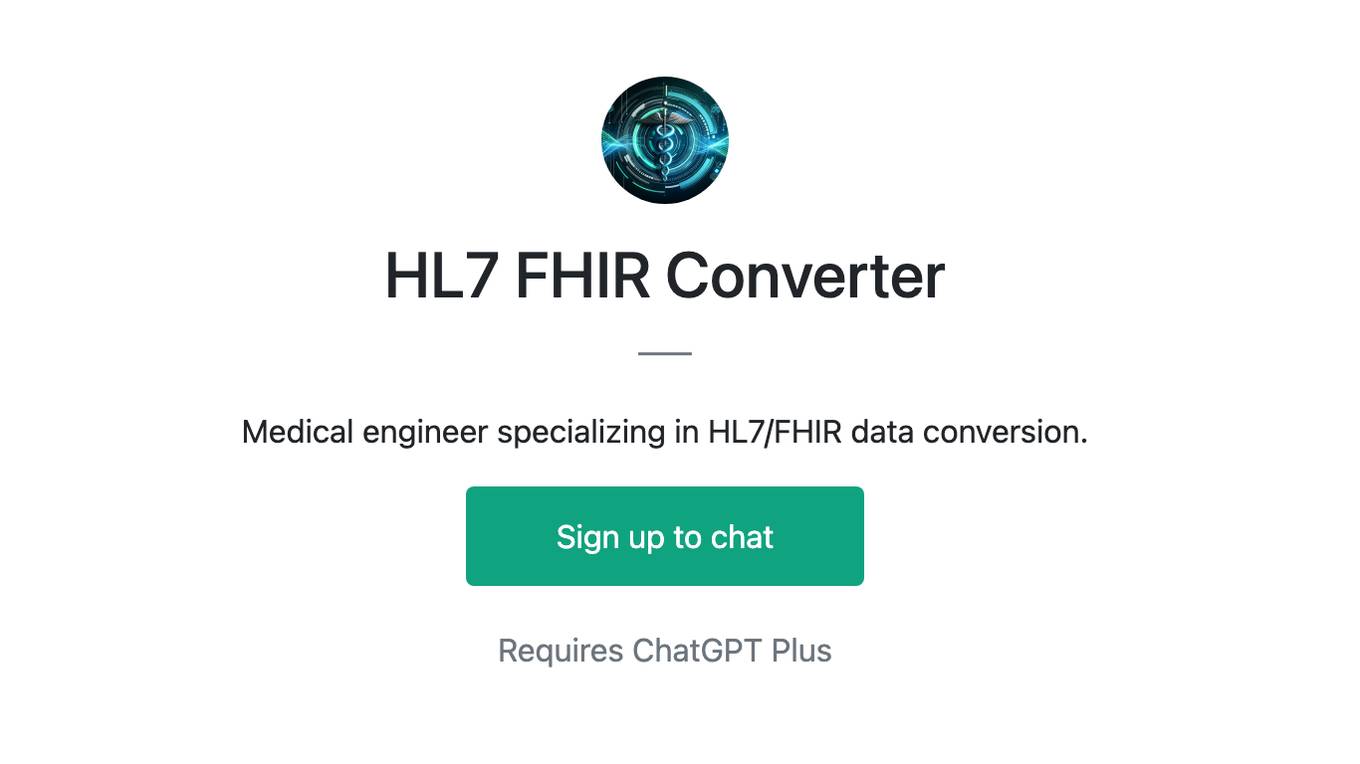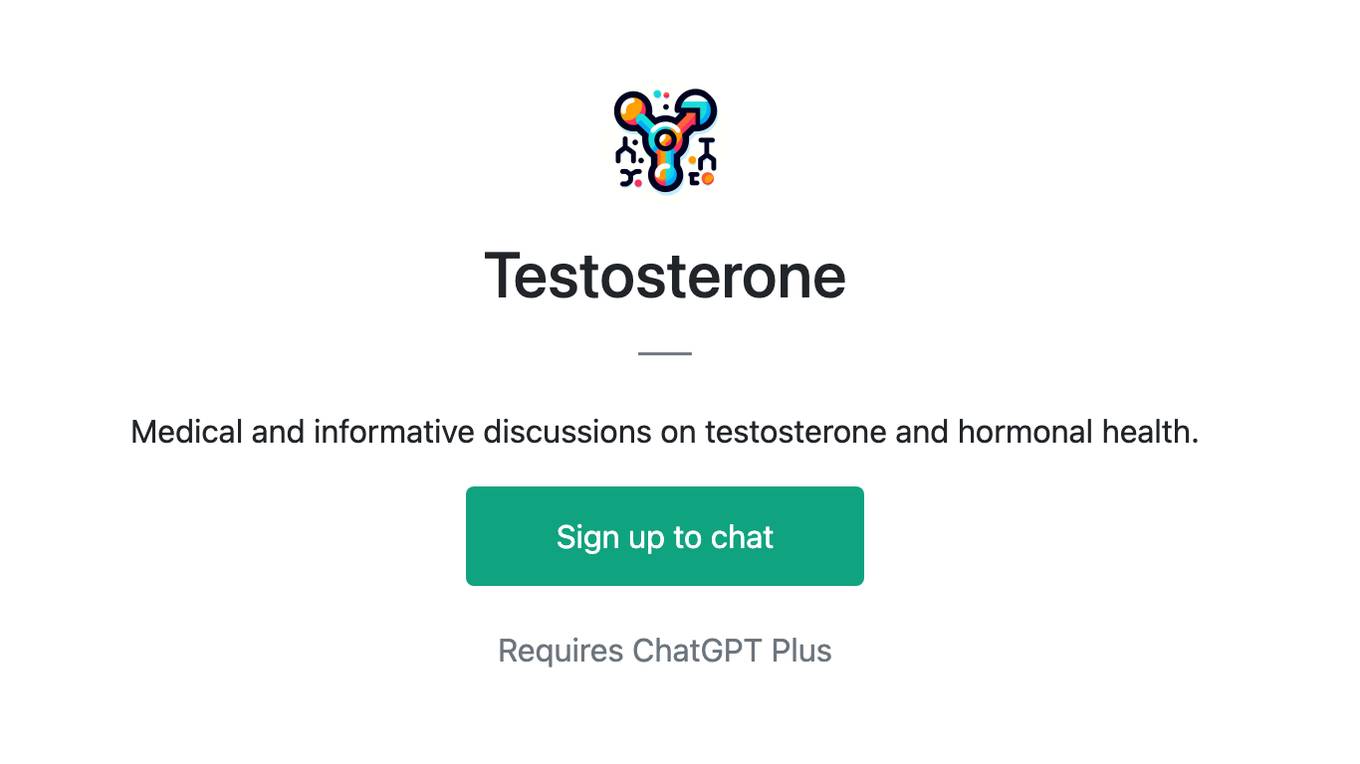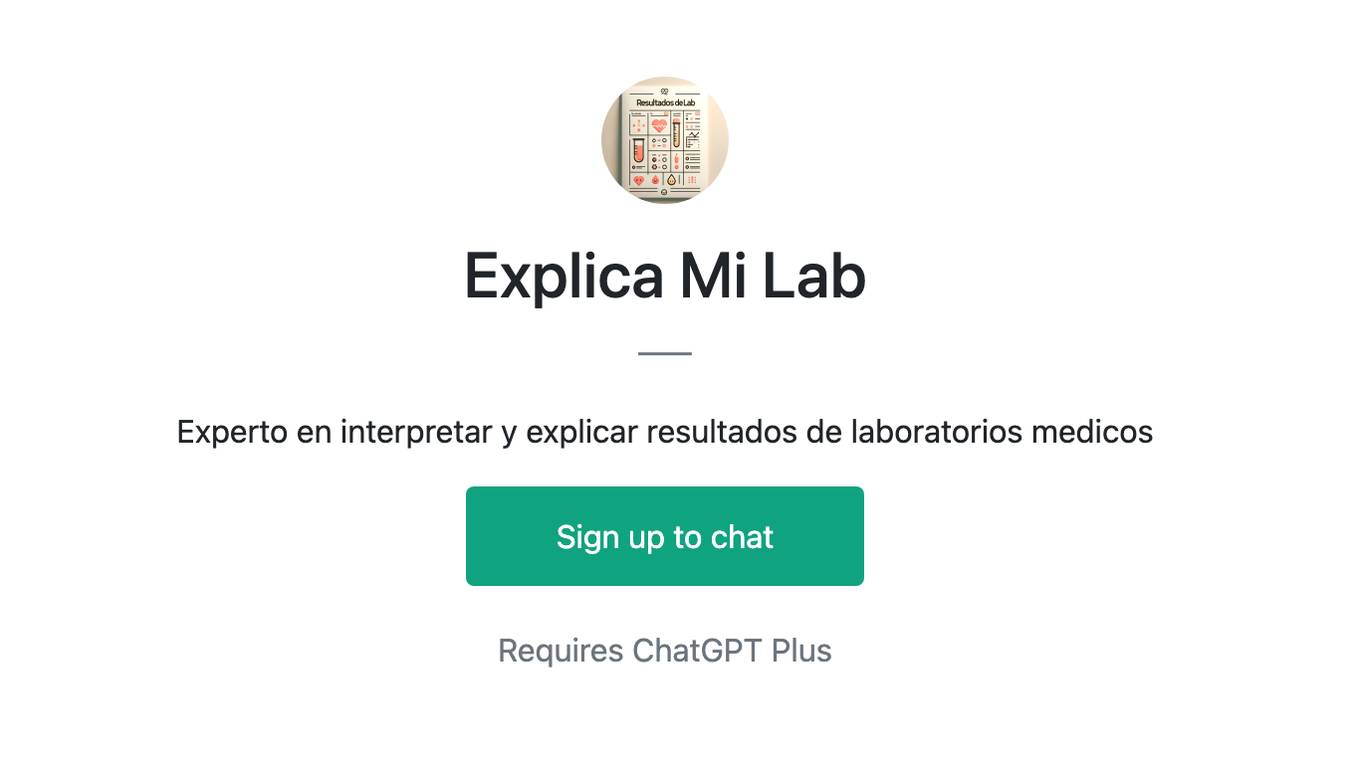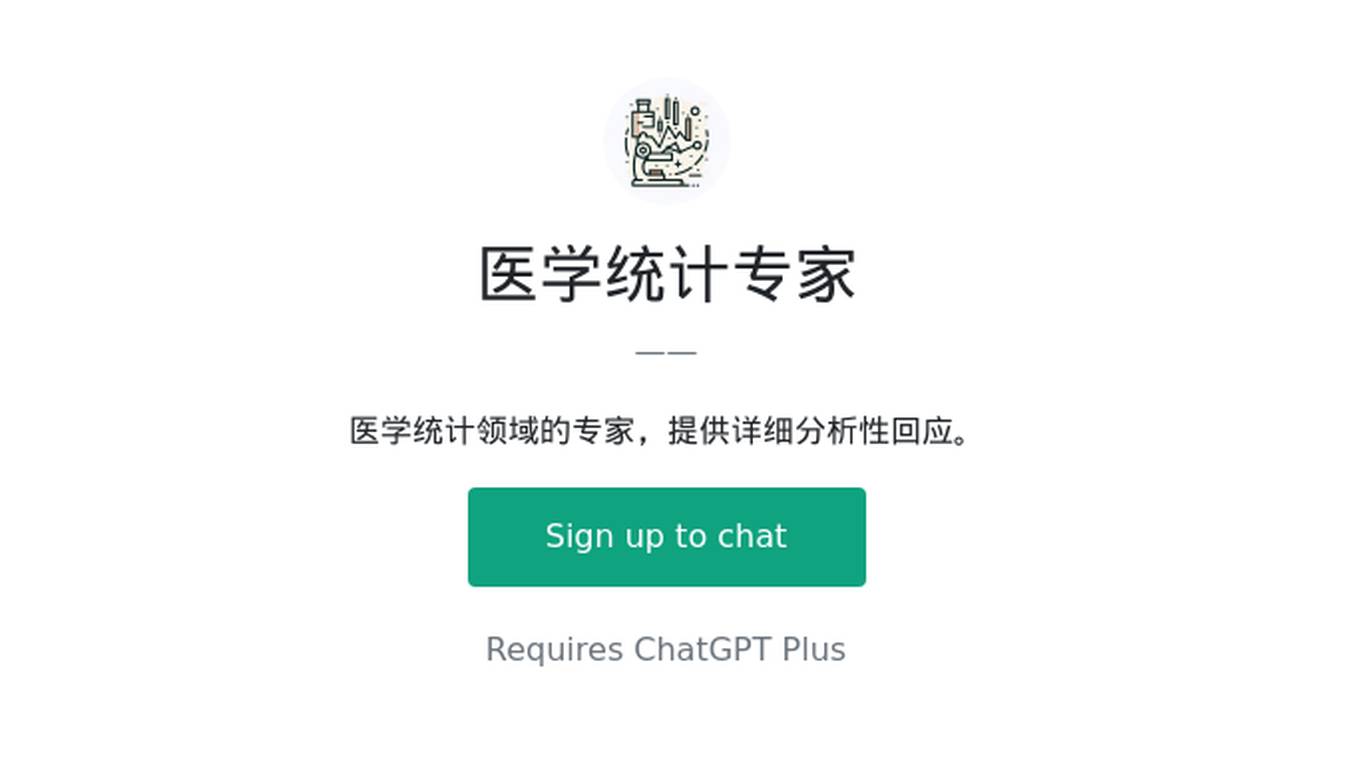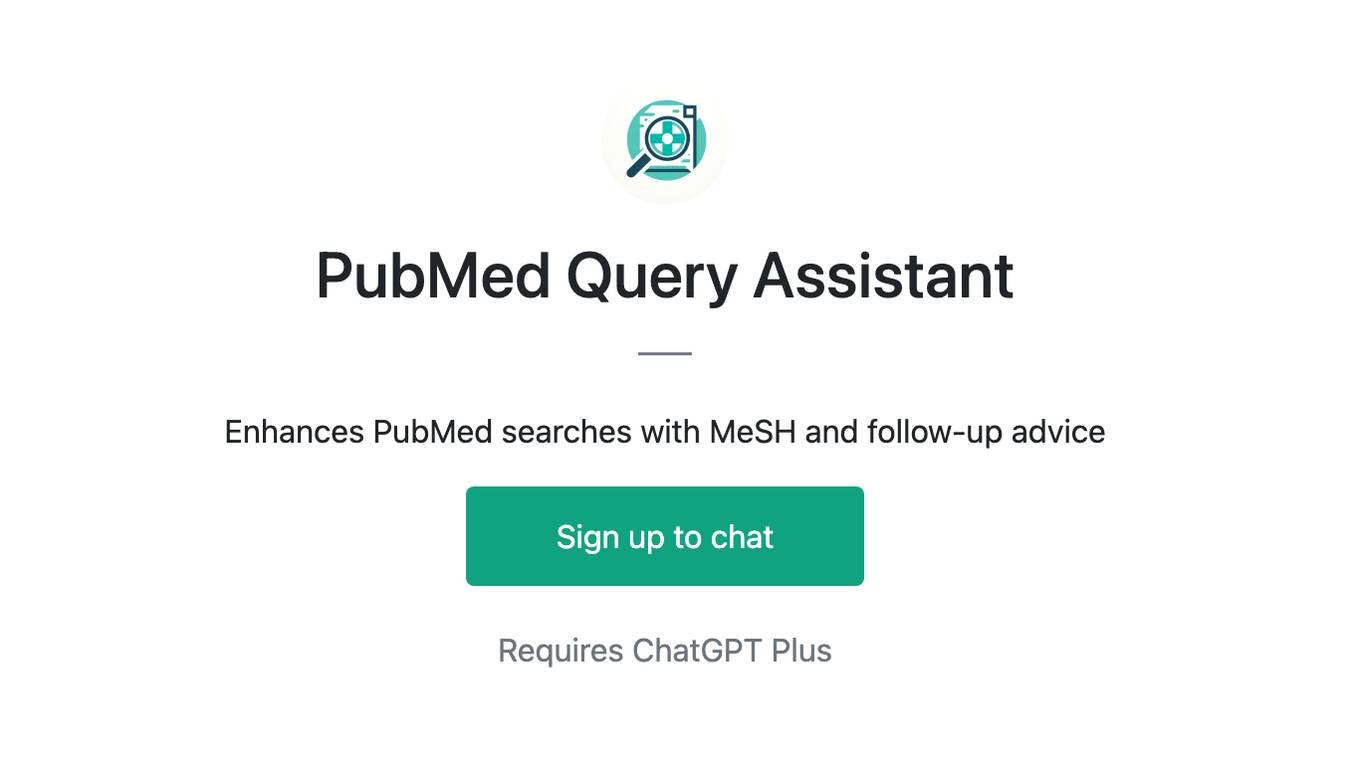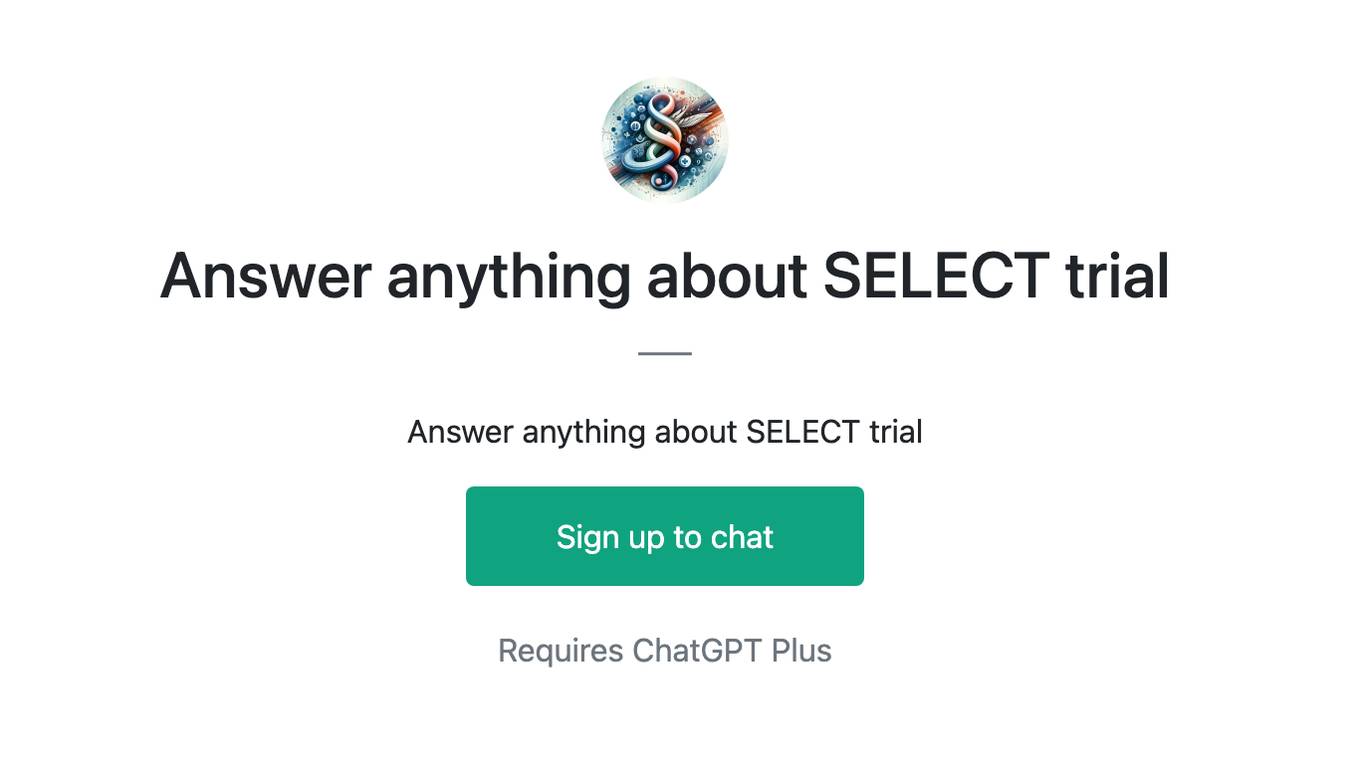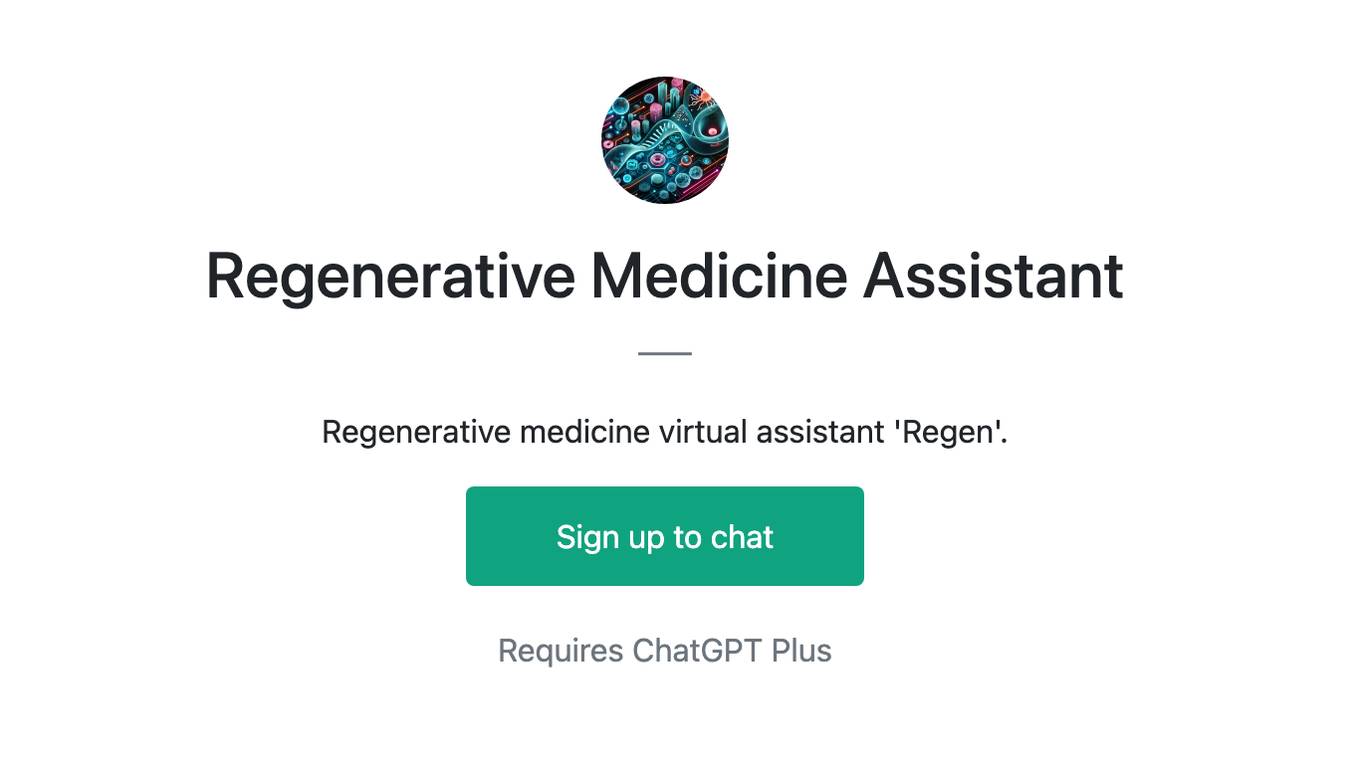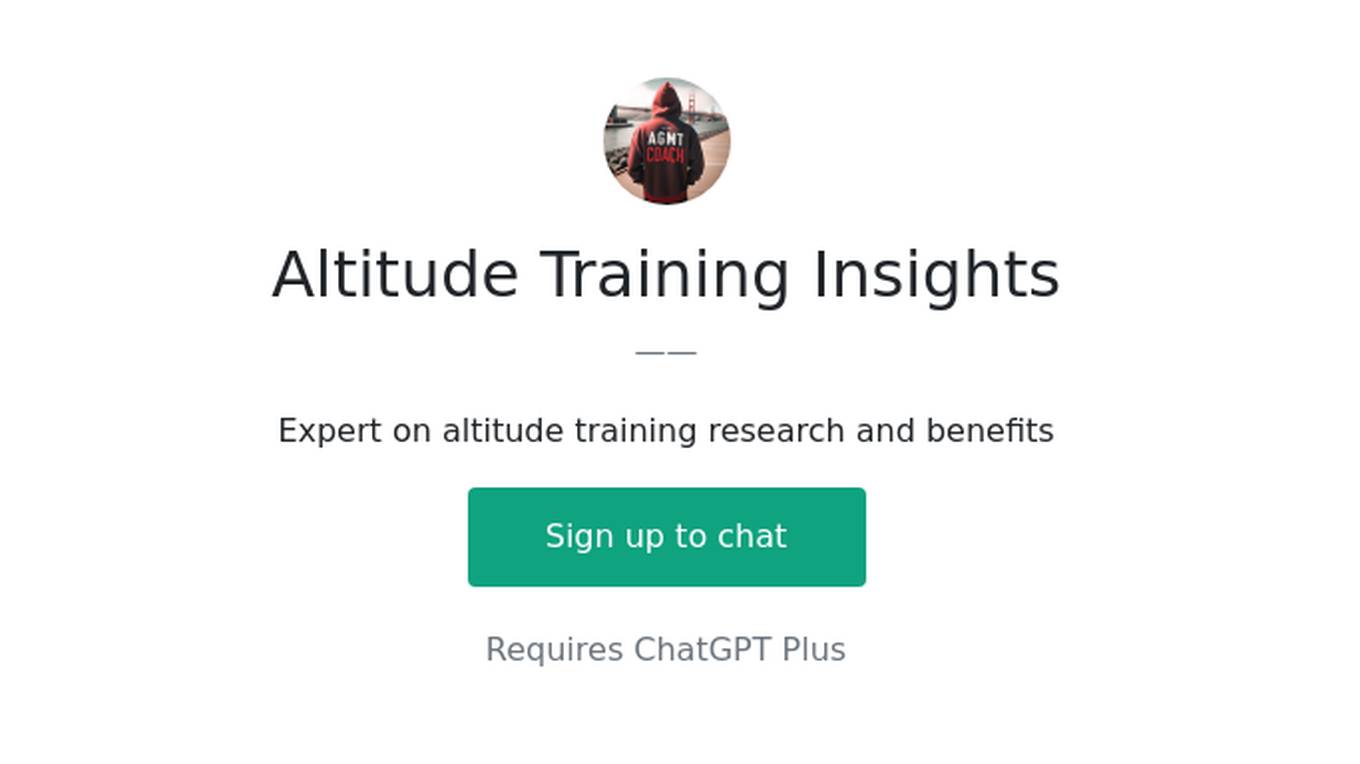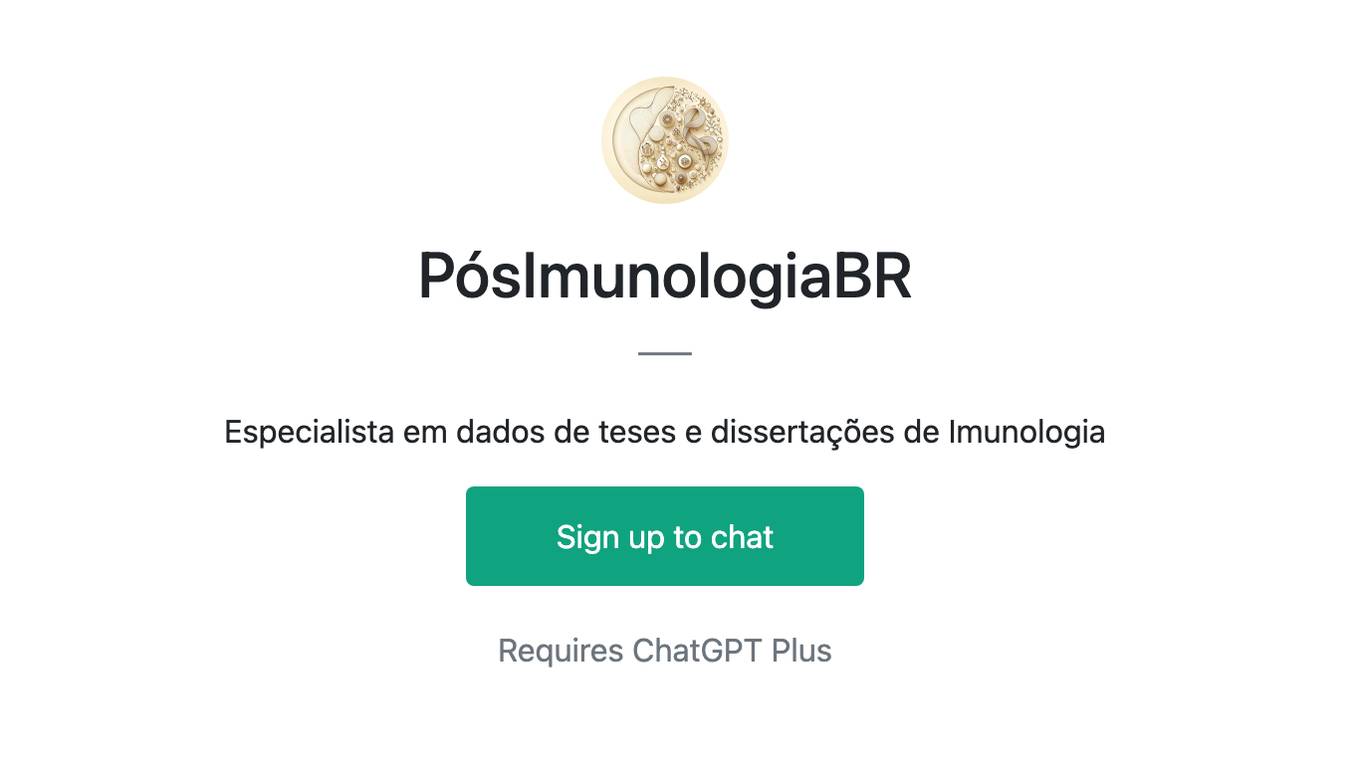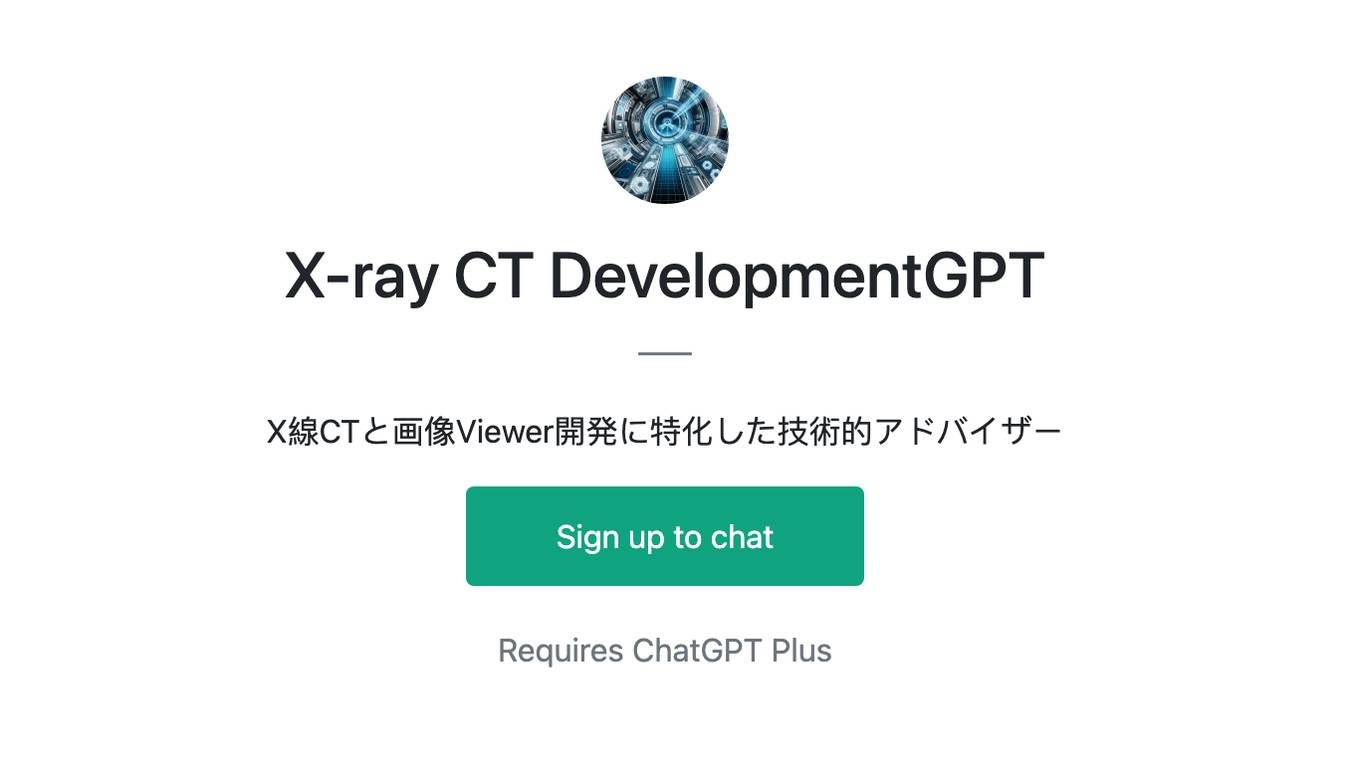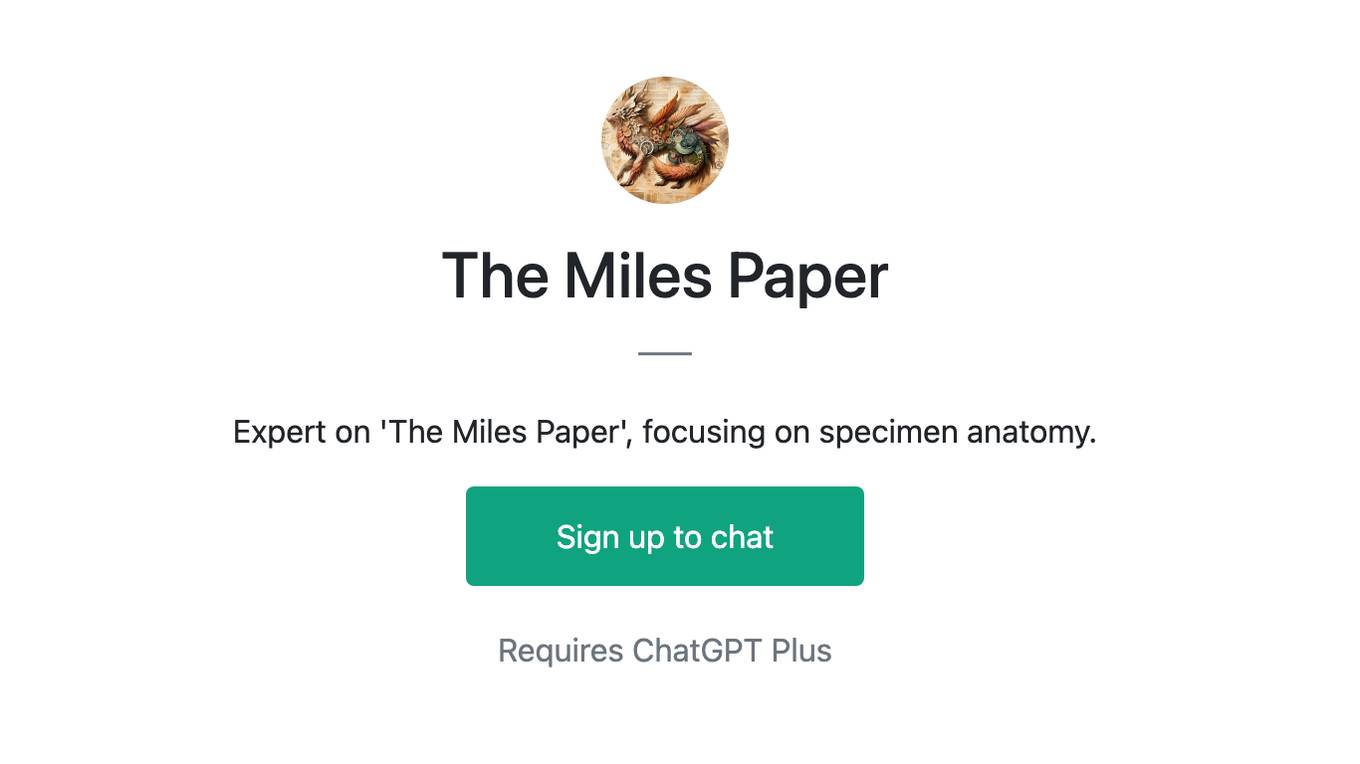Best AI tools for< Medical Scientist >
Infographic
20 - AI tool Sites
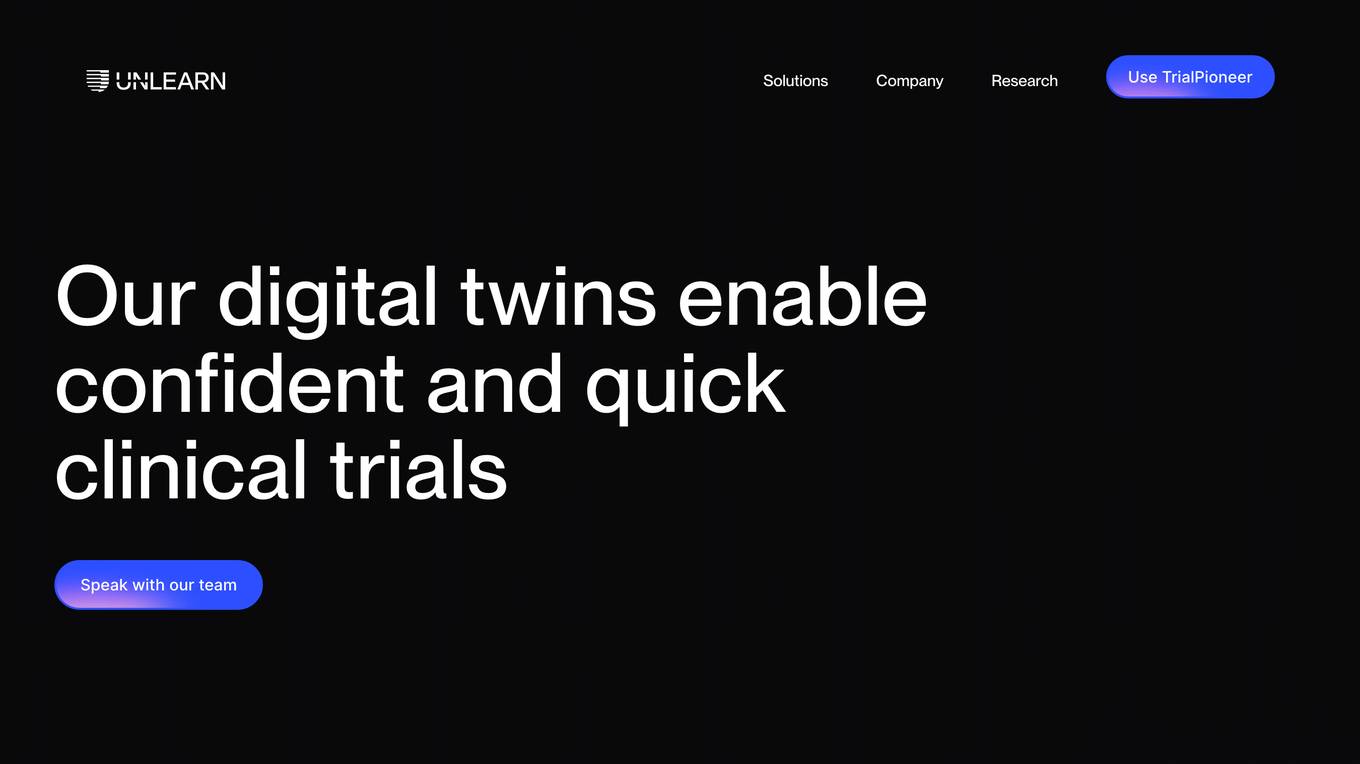
Unlearn.ai
Unlearn.ai is an AI-powered platform that streamlines clinical trials by leveraging digital twins of patients. The platform replaces traditional siloed workflows with a unified workspace for trial design, planning, and analysis. By utilizing digital twins, data, and AI, Unlearn.ai helps teams achieve alignment faster, test assumptions earlier, and move forward with confidence in clinical development.
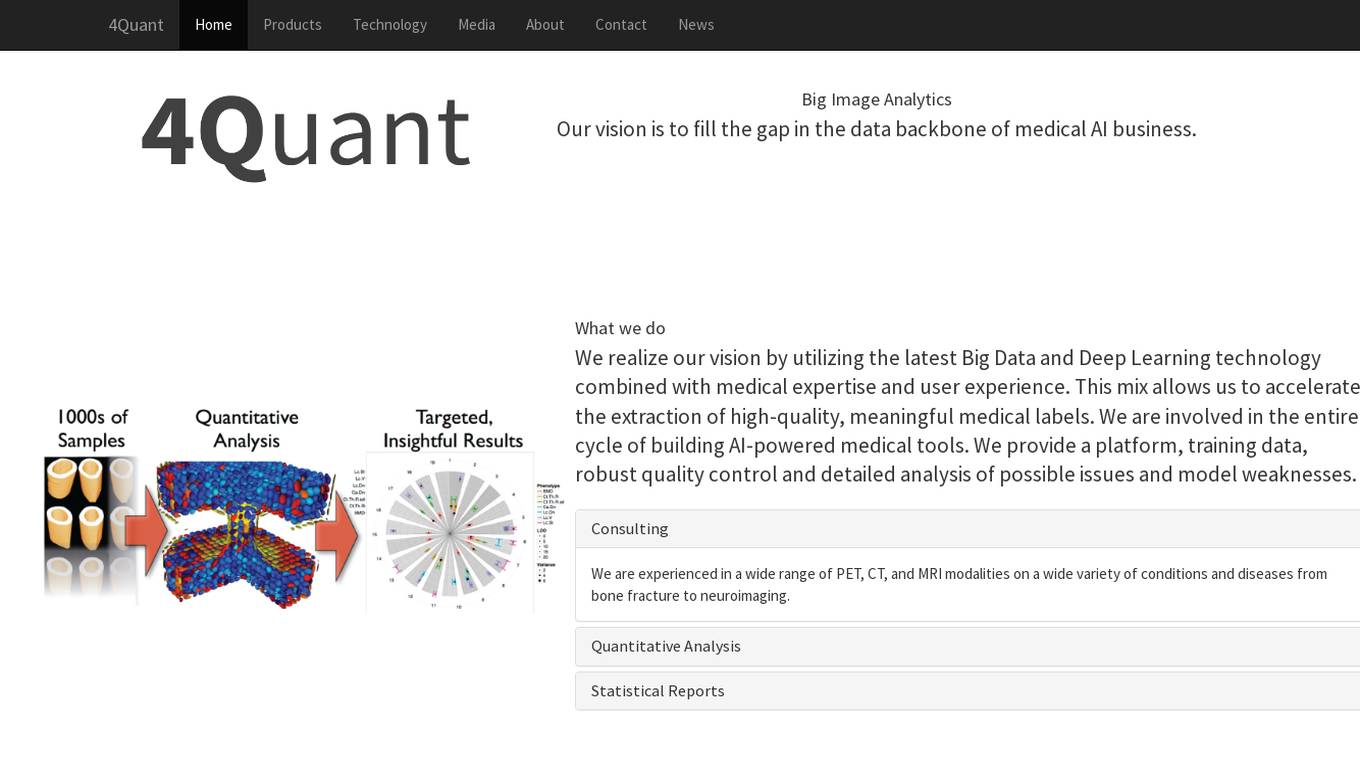
4Quant
4Quant is an AI-powered medical imaging platform that utilizes Big Data and Deep Learning technology to accelerate the extraction of high-quality medical labels. The platform offers a range of tools for image analysis, annotation, and data analytics in the medical field. 4Quant aims to provide scalable solutions for medical imaging analysis, statistical reporting, and personalized training in image analysis. The platform is built on the latest Big Data framework, Apache Spark, and integrates with cloud computing for efficient processing of large datasets.
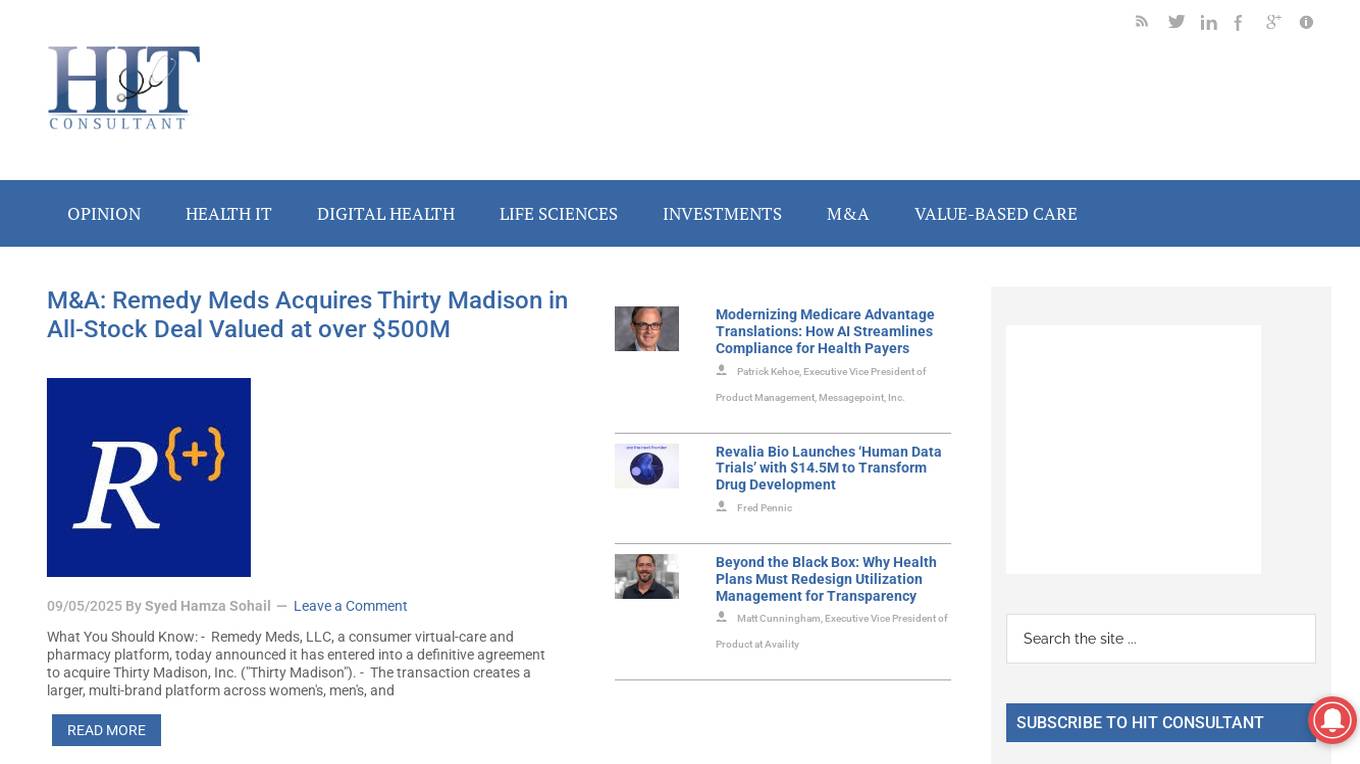
HIT Consultant
HIT Consultant is a healthcare IT news website that provides insights, analysis, and updates on various topics such as behavioral health, care coordination, EMR/EHR, interoperability, patient engagement, population health management, revenue cycle management, social determinants of health, digital health, AI, blockchain, precision medicine, telehealth, wearables, life sciences, investments, M&A, and value-based care. The website covers recent news, mergers, acquisitions, product launches, partnerships, and industry trends in the healthcare technology sector.
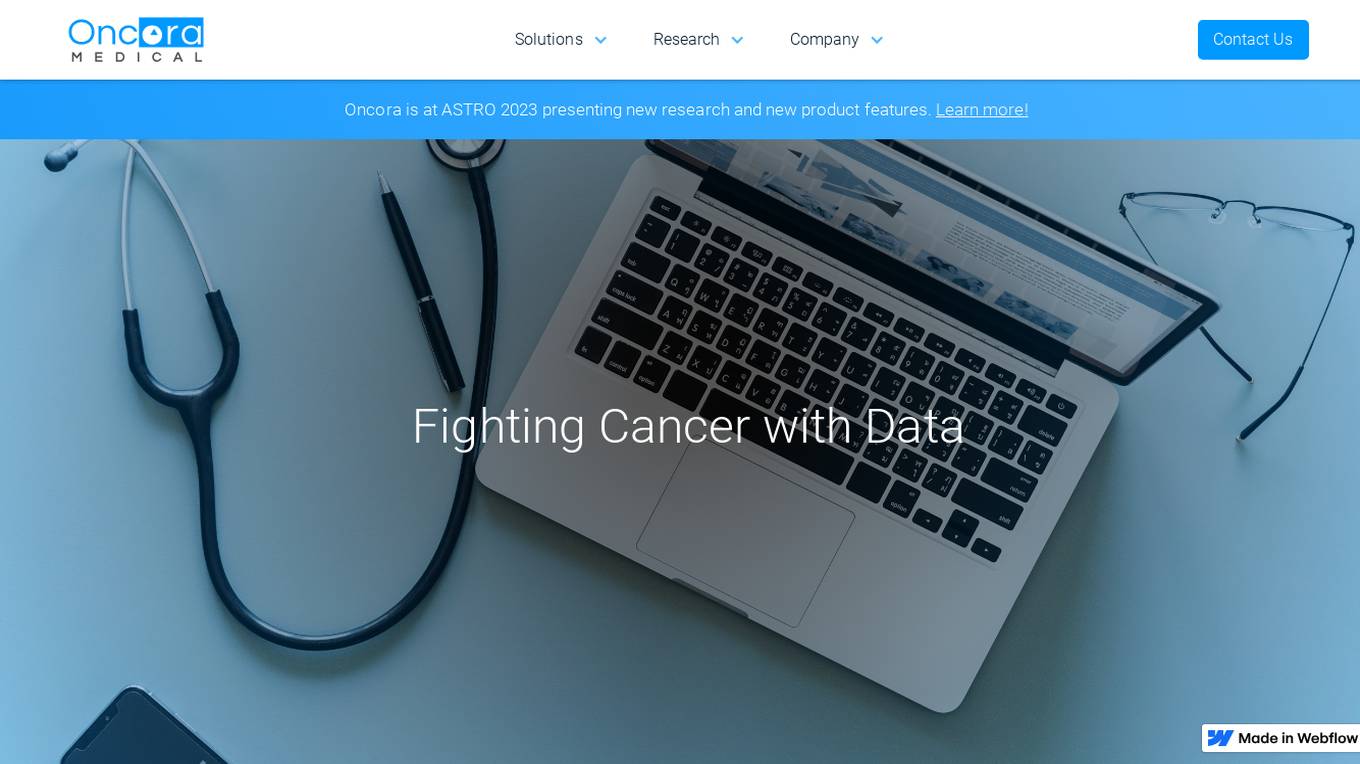
Oncora Medical
Oncora Medical is a healthcare technology company that provides software and data solutions to oncologists and cancer centers. Their products are designed to improve patient care, reduce clinician burnout, and accelerate clinical discoveries. Oncora's flagship product, Oncora Patient Care, is a modern, intelligent user interface for oncologists that simplifies workflow, reduces documentation burden, and optimizes treatment decision making. Oncora Analytics is an adaptive visual and backend software platform for regulatory-grade real world data analytics. Oncora Registry is a platform to capture and report quality data, treatment data, and outcomes data in the oncology space.
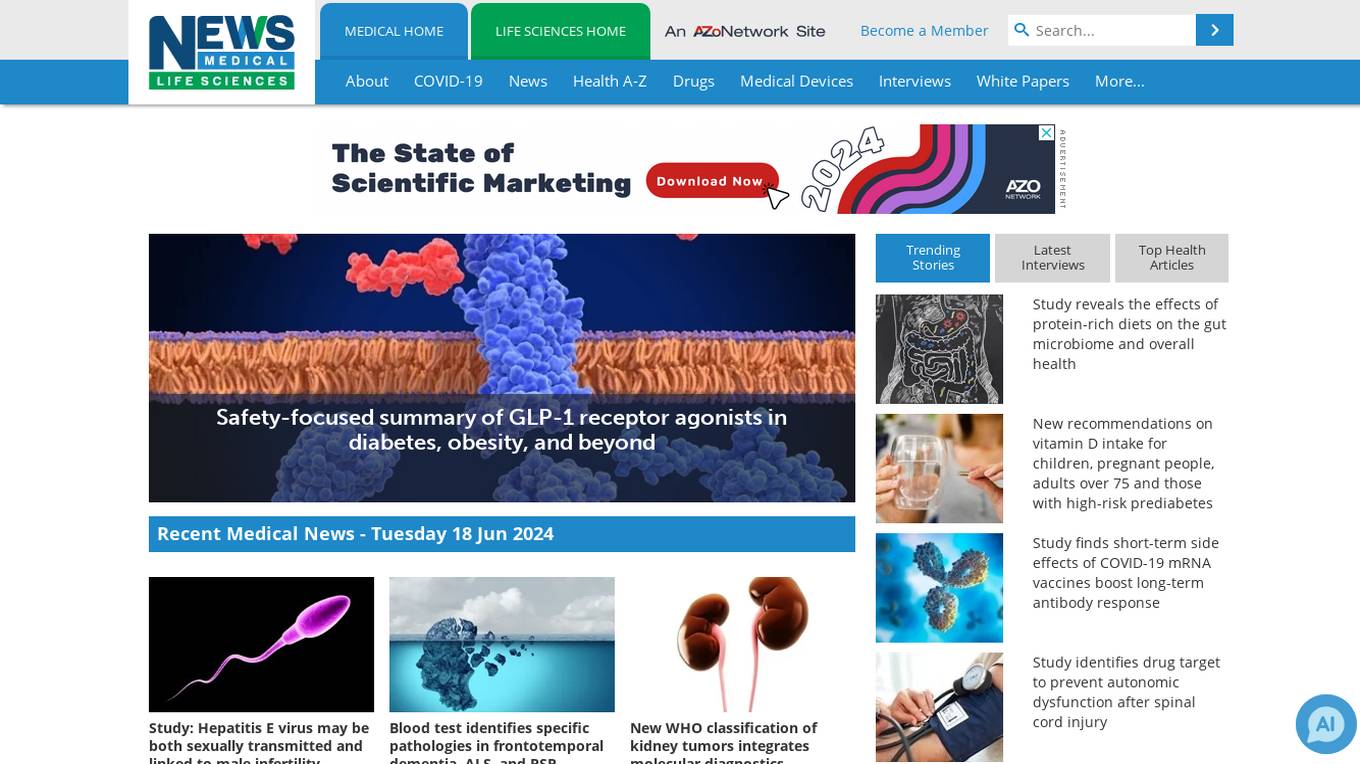
Medical News Hub
The website is a comprehensive platform providing medical news, articles, and resources covering a wide range of health topics such as COVID-19, artificial intelligence in healthcare, diseases, treatments, and medical advancements. It offers insights from experts, interviews, white papers, and newsletters in the fields of medicine and life sciences. Users can access information on various health categories, research findings, safety summaries, and trending stories in the medical and life sciences domains.
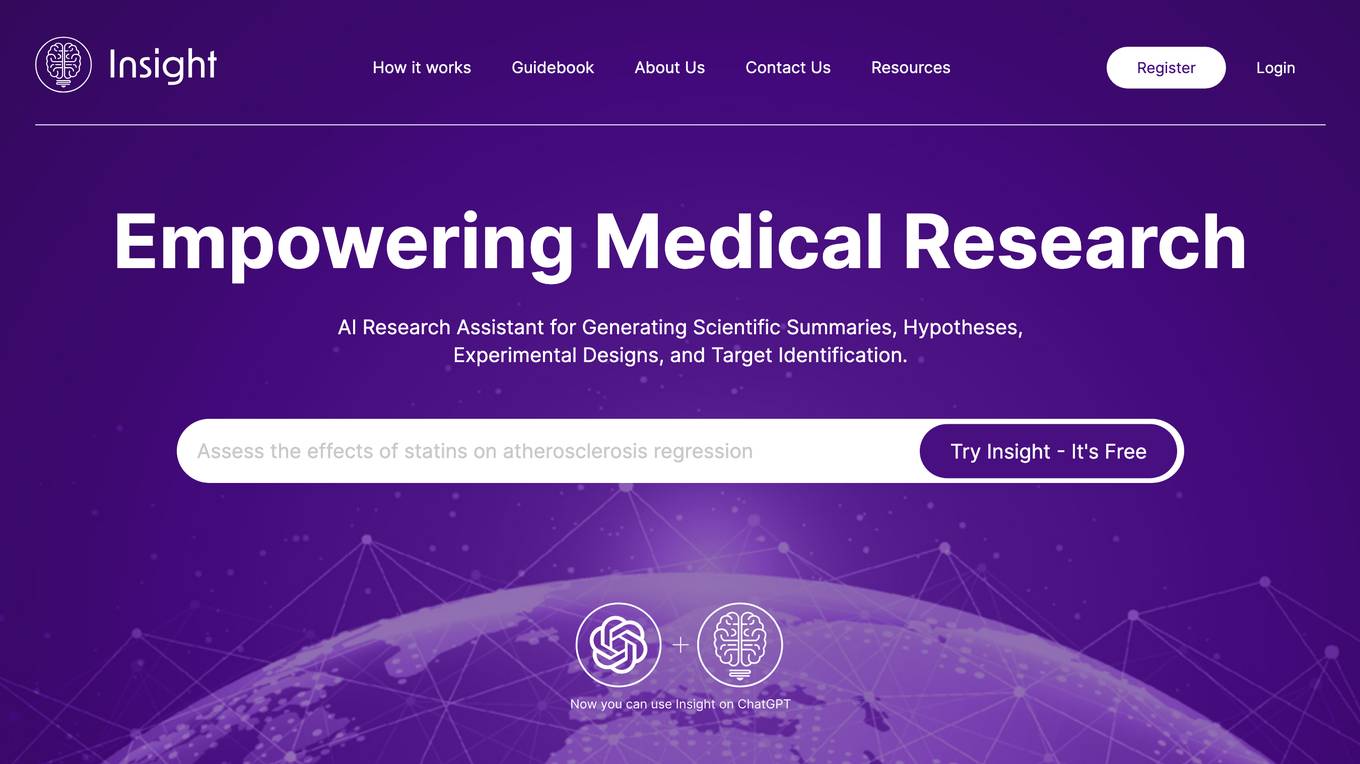
Insight
Insight is an AI-powered medical research tool that serves as a research assistant for generating scientific summaries, hypotheses, experimental designs, and target identification. It empowers scientists to navigate literature, formulate hypotheses, and design experiments by utilizing peer-reviewed databases to provide reliable outputs. With integrated features like NIH PubMed access, NIH Reporter insights, and MYGENE & MYVARIANT deep dives, Insight streamlines the research process and accelerates discoveries in the medical field.
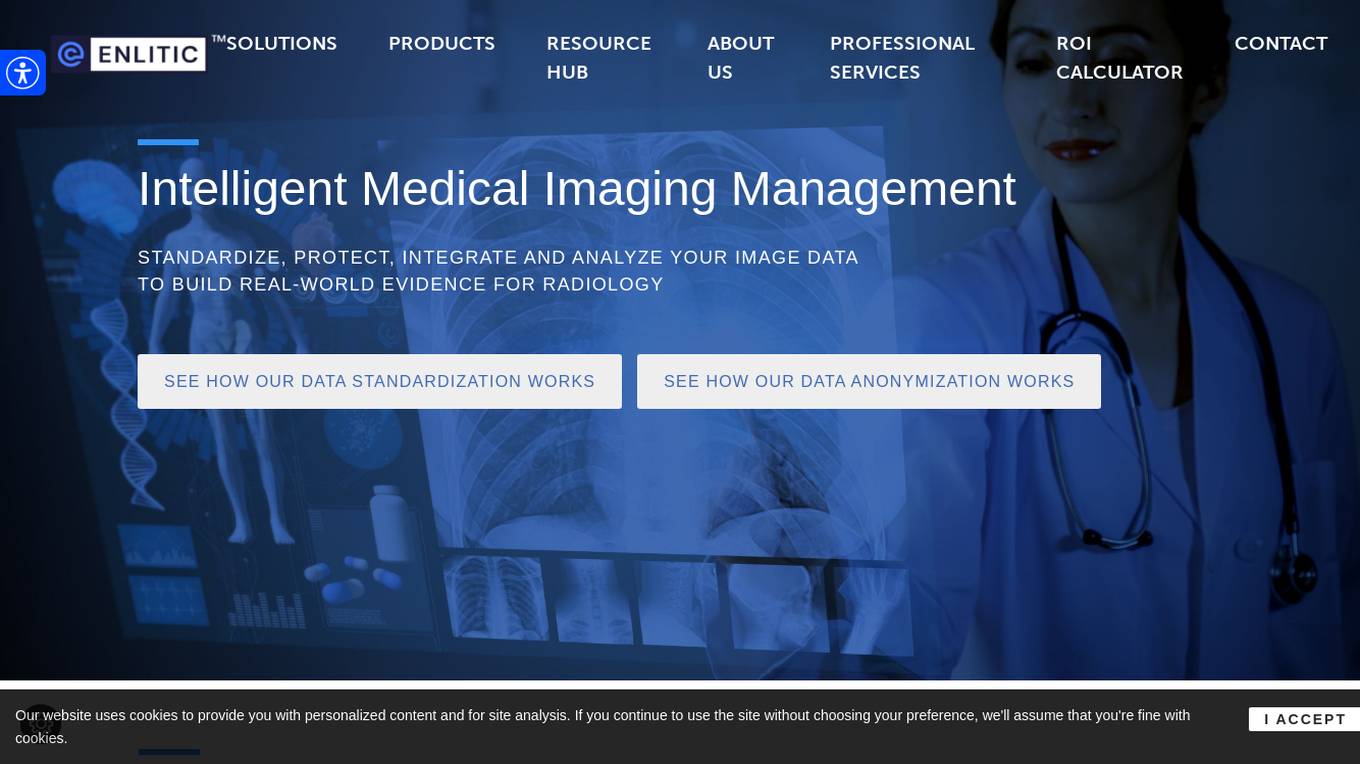
Enlitic
Enlitic provides healthcare data solutions that leverage artificial intelligence to improve data management, clinical workflows, and create a foundation for real-world evidence medical image databases. Their products, ENDEX and ENCOG, utilize computer vision and natural language processing to standardize, protect, and analyze medical imaging data, enabling healthcare providers to optimize workflows, increase efficiencies, and expand capacity.
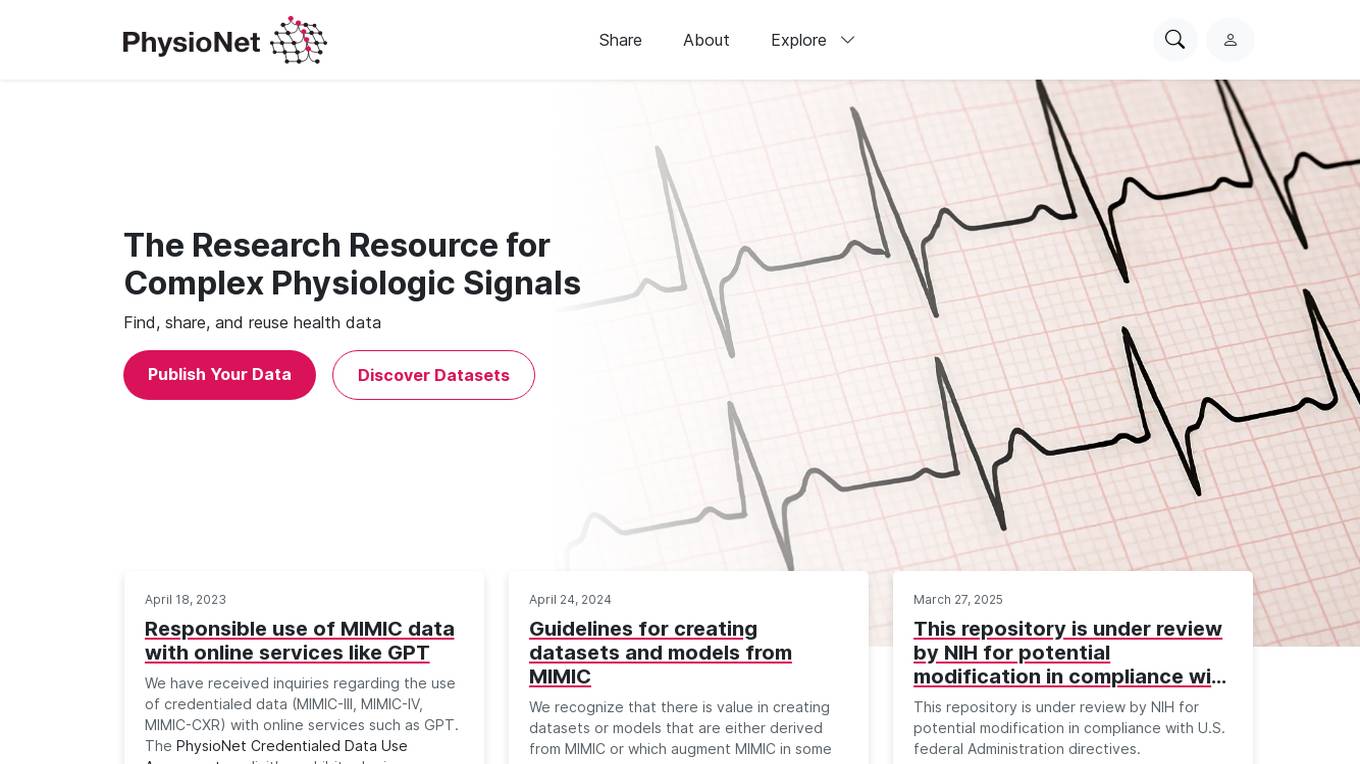
PhysioNet
PhysioNet is a research resource for complex physiologic signals that facilitates finding, sharing, and reusing health data. It provides access to various datasets and software tools for researchers in the medical field. PhysioNet aims to support the responsible use of data, including guidelines for creating datasets and models from sources like MIMIC. The platform also addresses access restrictions under the DOJ Data Security Program, ensuring compliance with legal obligations while supporting researchers in understanding and navigating policy changes.
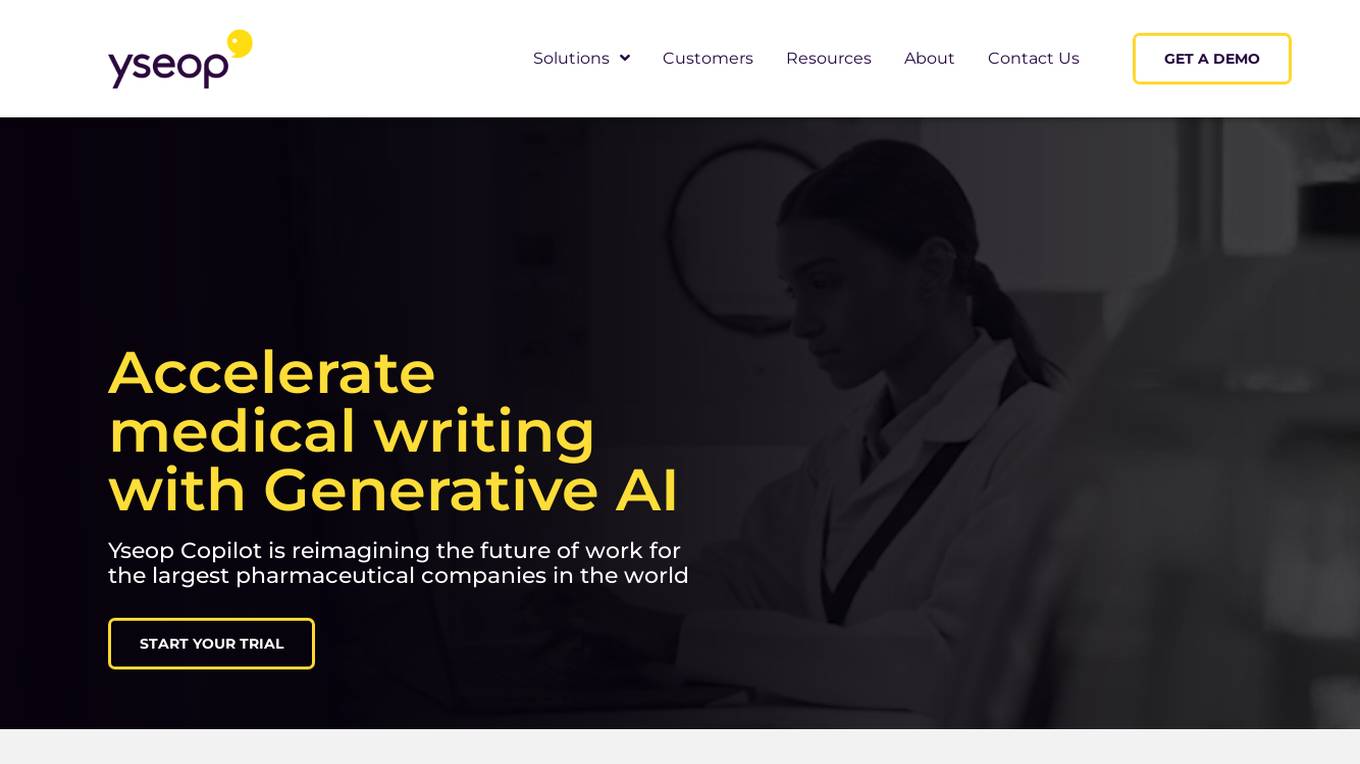
Yseop
Yseop offers Natural Language Generation (NLG) services that automate and translate data into actionable language, simplifying complex workflows. Its AI-based technologies generate core elements of specialist medical reports, including clinical study reports (CSR), patient narratives, and more. Yseop also automates the writing of financial reports, removing the risk of error in manual writing to ensure accuracy, consistency, and compliance. Additionally, Yseop provides bespoke NLG applications tailored to specific needs, helping streamline operations and empower workers with tailored information and insights.
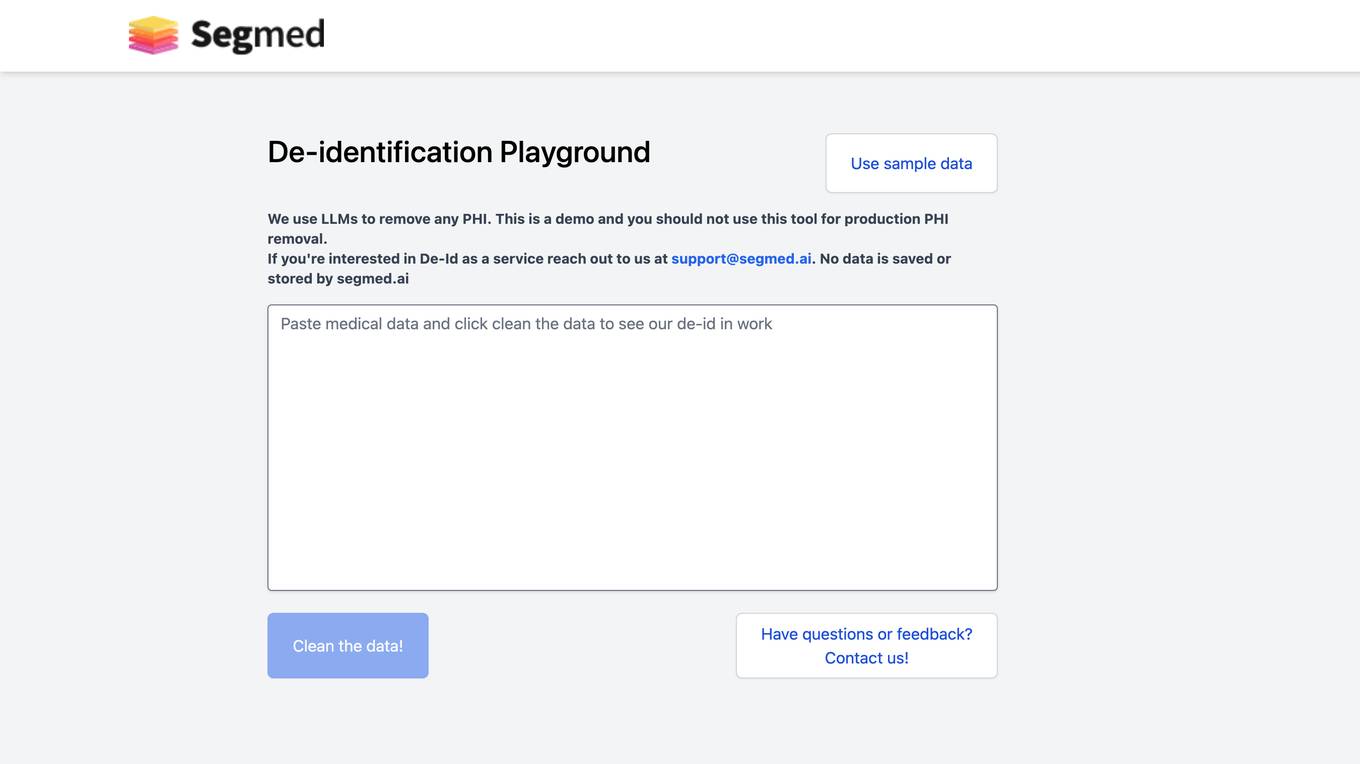
Segmed
Segmed offers a free Medical Data De-Identification Tool that utilizes NLP and language models to remove any PHI, ensuring privacy-compliant medical research. The tool is designed for demonstration purposes only, with the option to reach out for De-Id as a service. Segmed.ai does not save or store any data, providing a secure environment for cleaning medical data. Users can access sample data and benefit from de-identified clinical data solutions.
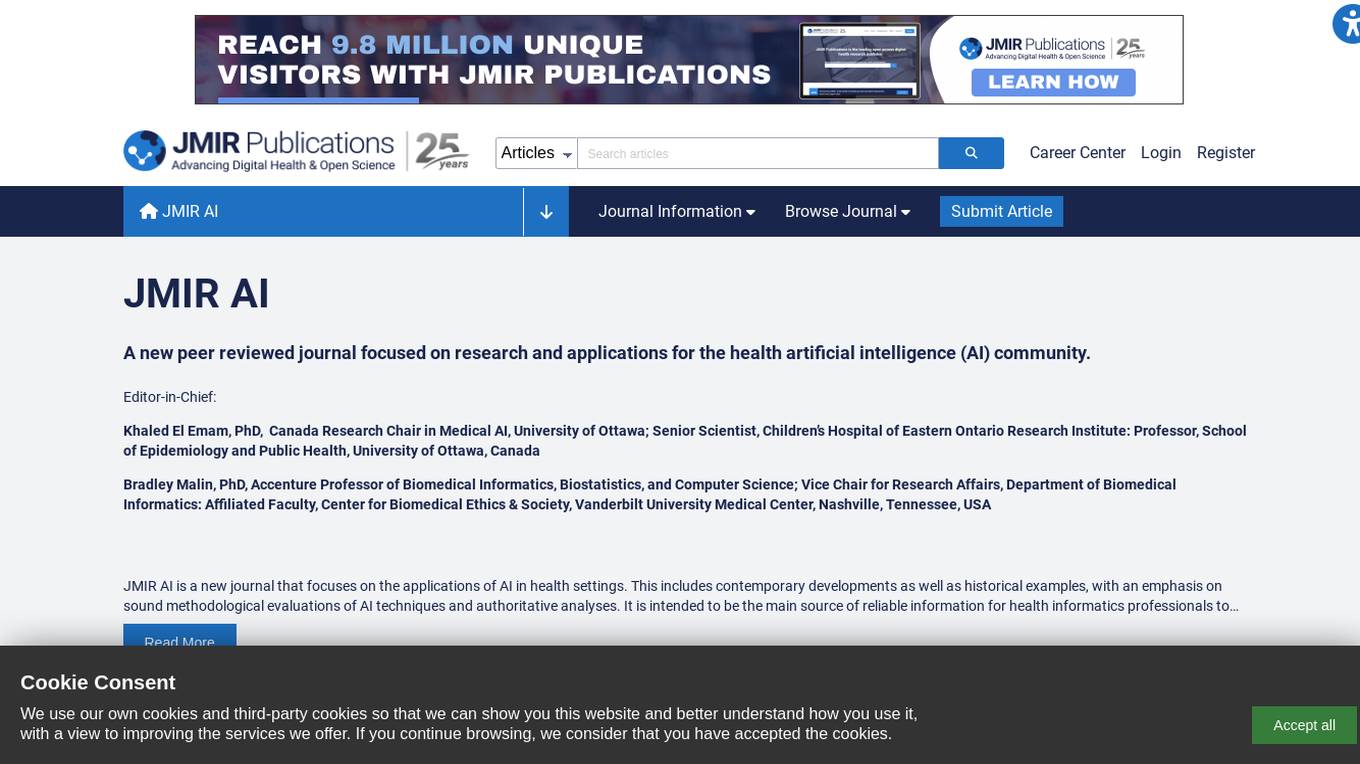
JMIR AI
JMIR AI is a new peer-reviewed journal focused on research and applications for the health artificial intelligence (AI) community. It includes contemporary developments as well as historical examples, with an emphasis on sound methodological evaluations of AI techniques and authoritative analyses. It is intended to be the main source of reliable information for health informatics professionals to learn about how AI techniques can be applied and evaluated.
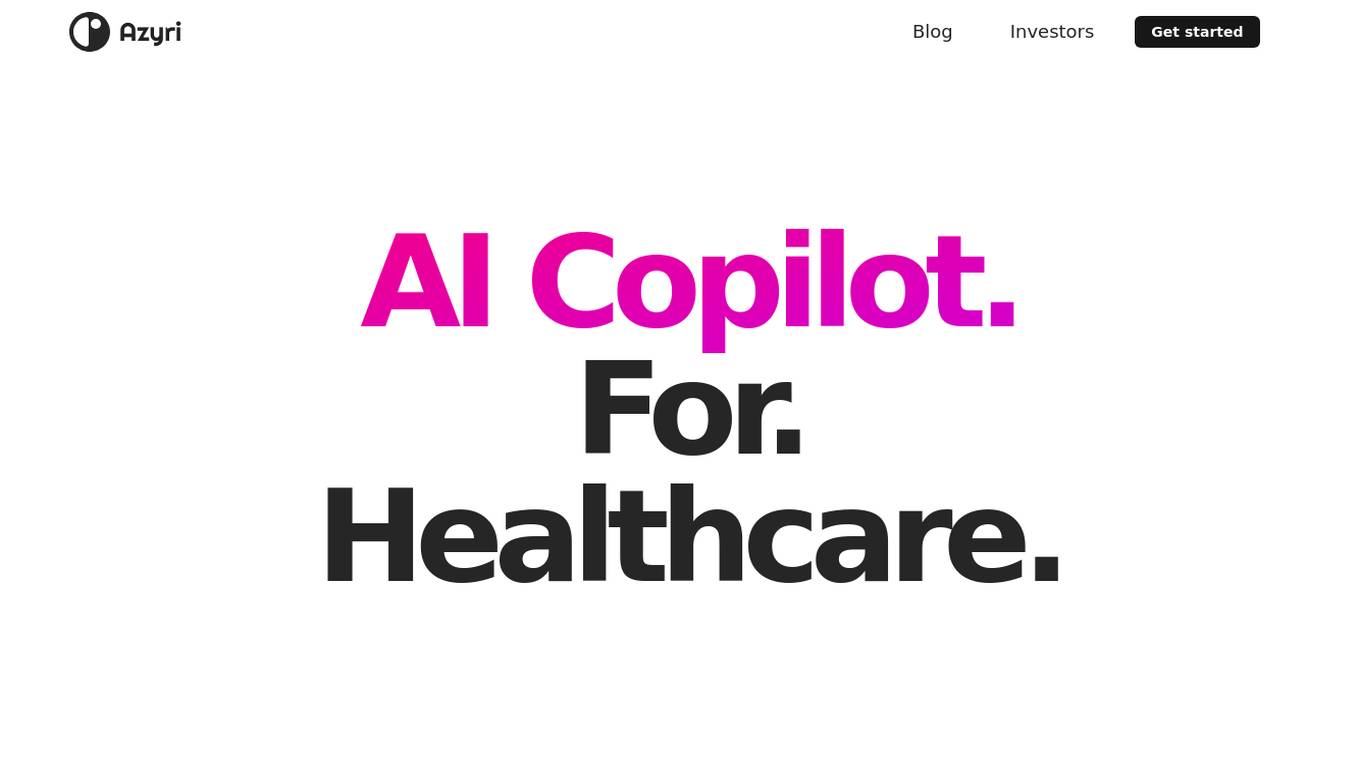
Azyri
Azyri is an AI-powered medical assistant that provides bone age assessment services to healthcare professionals, students, and AI enthusiasts. It offers free access to its AI-based bone age estimation tool, allowing users to obtain an estimate of a patient's bone age from a simple X-ray image. Azyri's mission is to make bone age assessment more accessible and efficient, empowering healthcare providers with valuable insights for patient care.
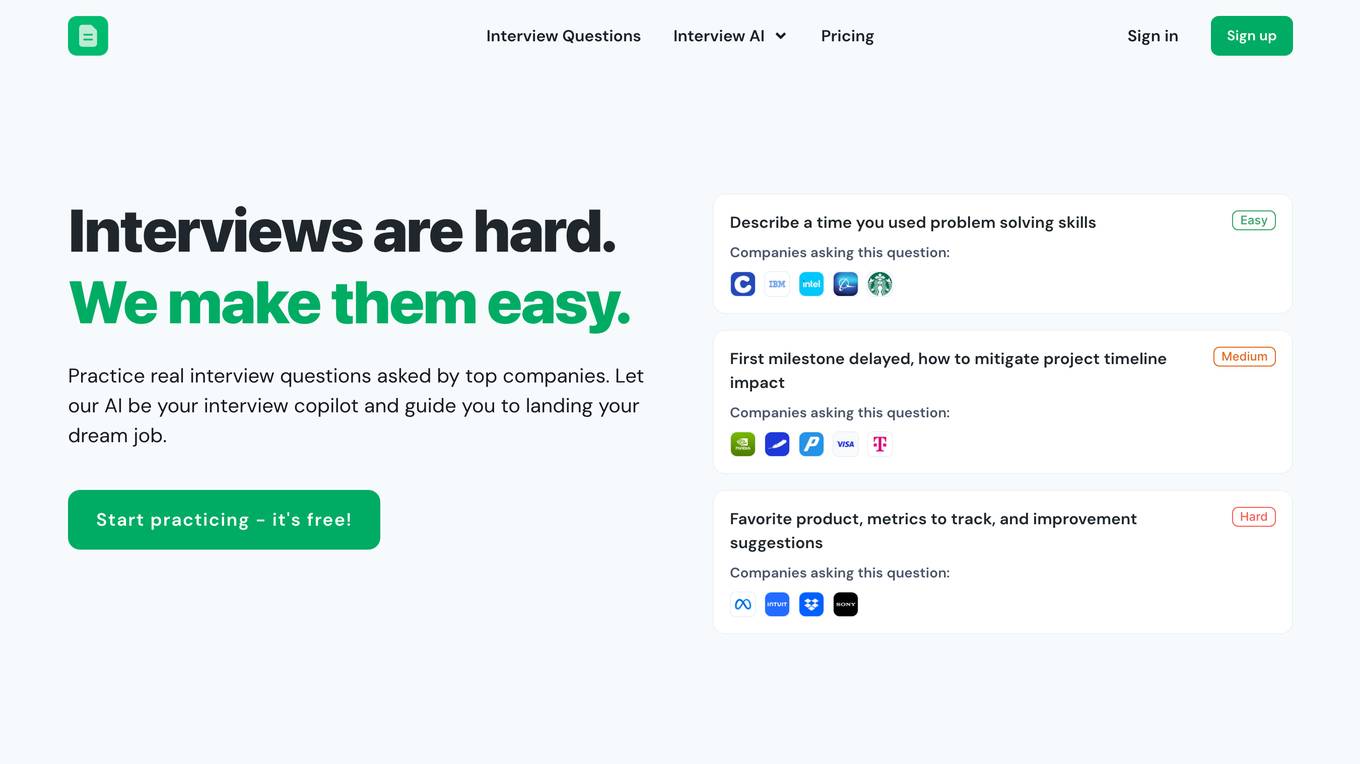
Interview.study
Interview.study is an AI-powered interview preparation platform that helps candidates practice real interview questions asked by top companies. The platform provides users with instant feedback on their responses, helping them identify areas for improvement and develop stronger answers. Interview.study also offers a variety of features to help candidates prepare for their interviews, including a database of interview questions, a mock interview tool, and a resume builder.
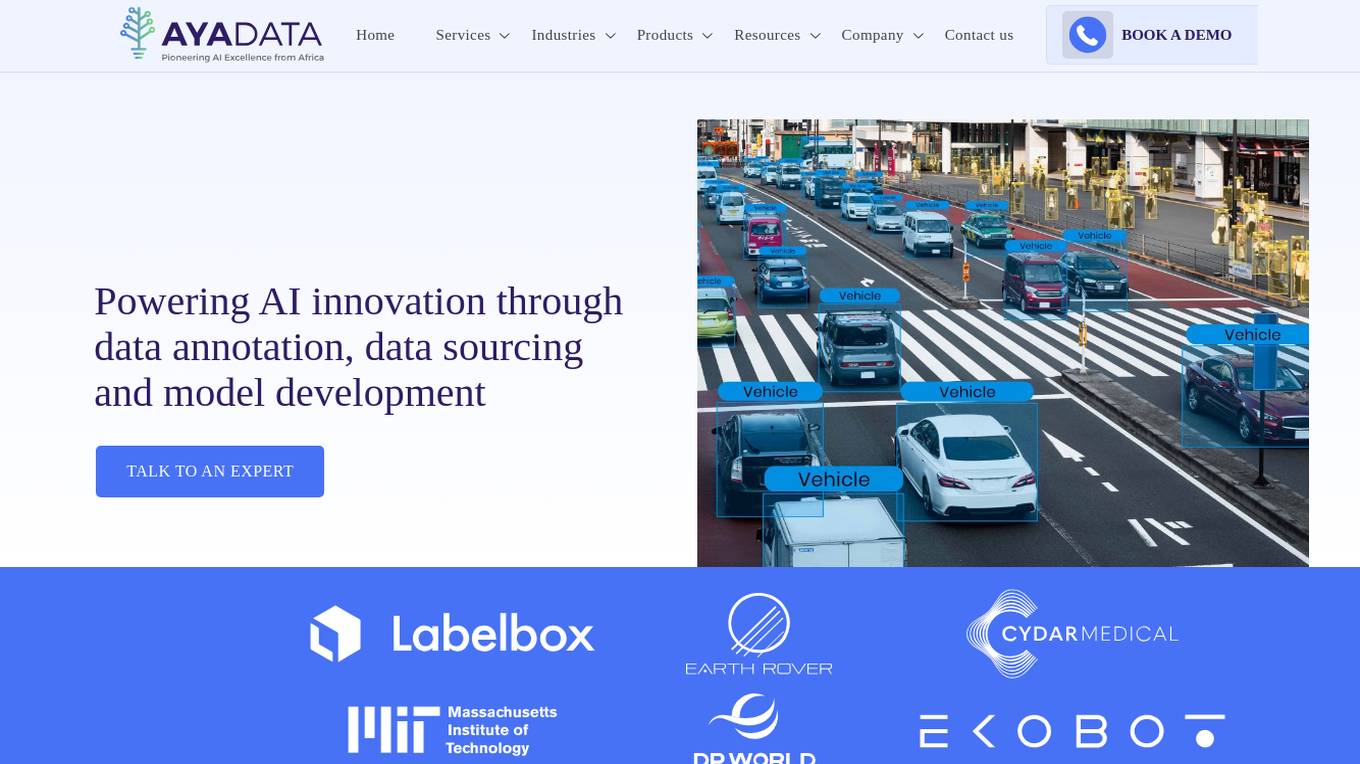
Aya Data
Aya Data is an AI tool that offers services such as data annotation, computer vision, natural language annotation, 3D annotation, AI data acquisition, and AI consulting. They provide cutting-edge tools to transform raw data into training datasets for AI models, deliver bespoke AI solutions for various industries, and offer AI-powered products like AyaGrow for crop management and AyaSpeech for speech-to-speech translation. Aya Data focuses on exceptional accuracy, rapid development cycles, and high performance in real-world scenarios.
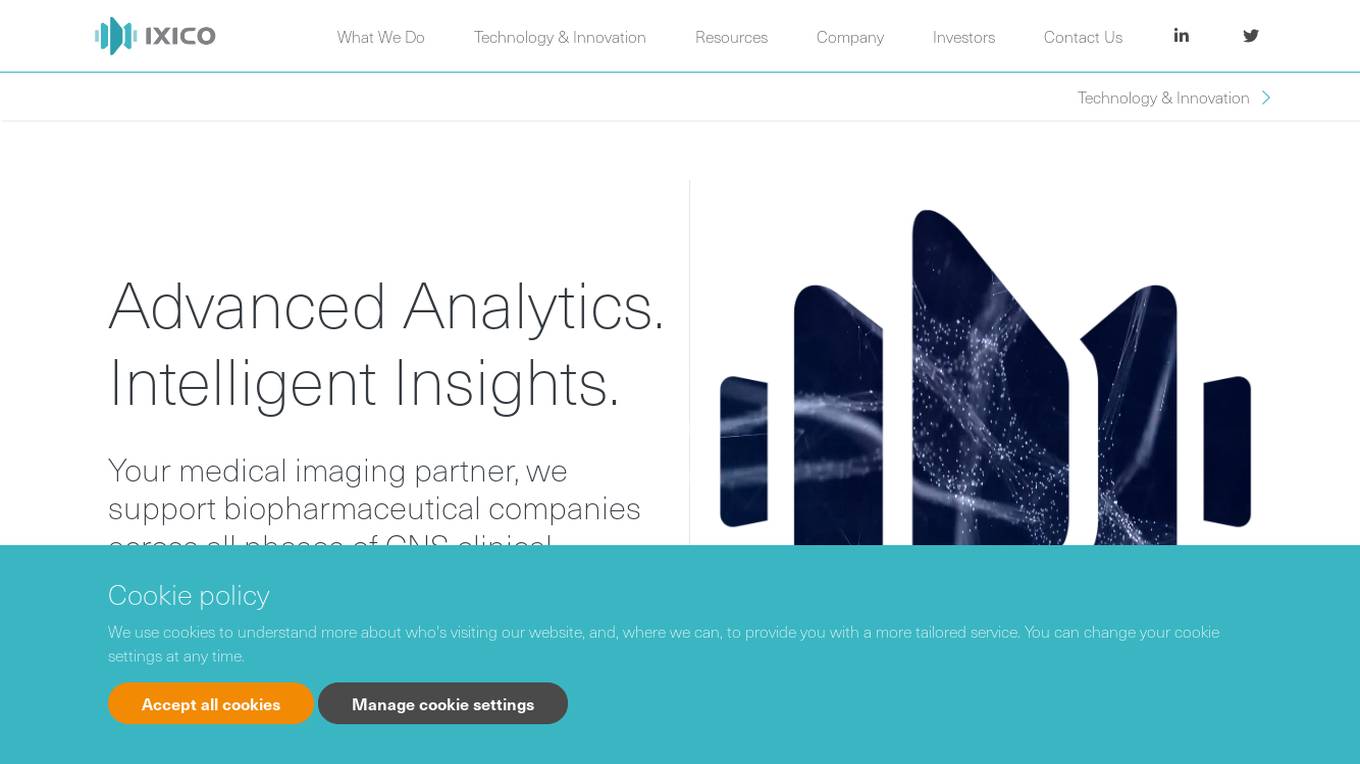
IXICO
IXICO is a precision analytics company specializing in intelligent insights in neuroscience. They offer a range of services for drug development analytics, imaging operations, and post-marketing consultancy. With a focus on technology and innovation, IXICO provides expertise in imaging biomarkers, radiological reads, volumetric MRI, PET & SPECT, and advanced MRI. Their TrialTracker platform and Assessa tool utilize innovation and AI for disease modeling and analysis. IXICO supports biopharmaceutical companies in CNS clinical research with cutting-edge neuroimaging techniques and AI technology.
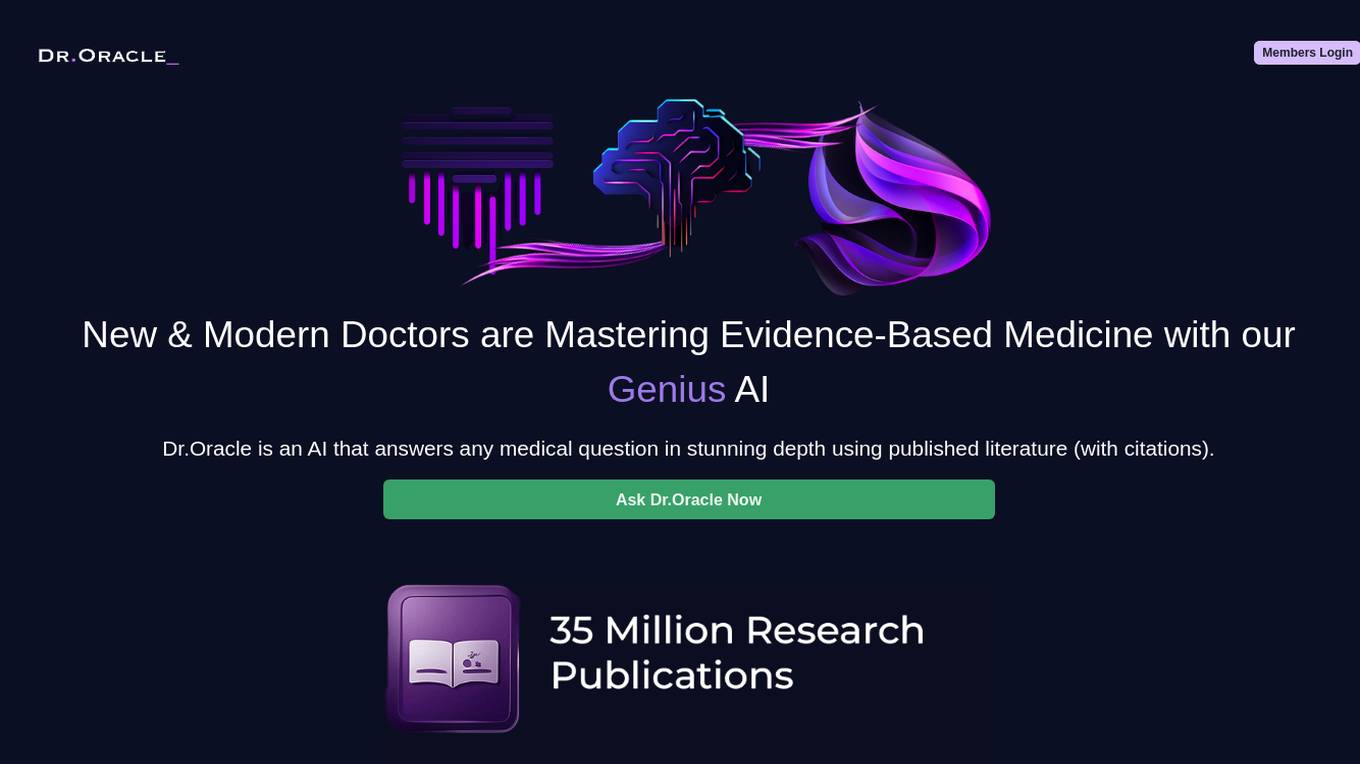
Dr.Oracle
Dr.Oracle is a personal AI research assistant that helps you find and understand the latest research in your field. With Dr.Oracle, you can search for research papers, track your favorite authors, and get personalized recommendations for new research. Dr.Oracle is the perfect tool for students, researchers, and anyone who wants to stay up-to-date on the latest research in their field.
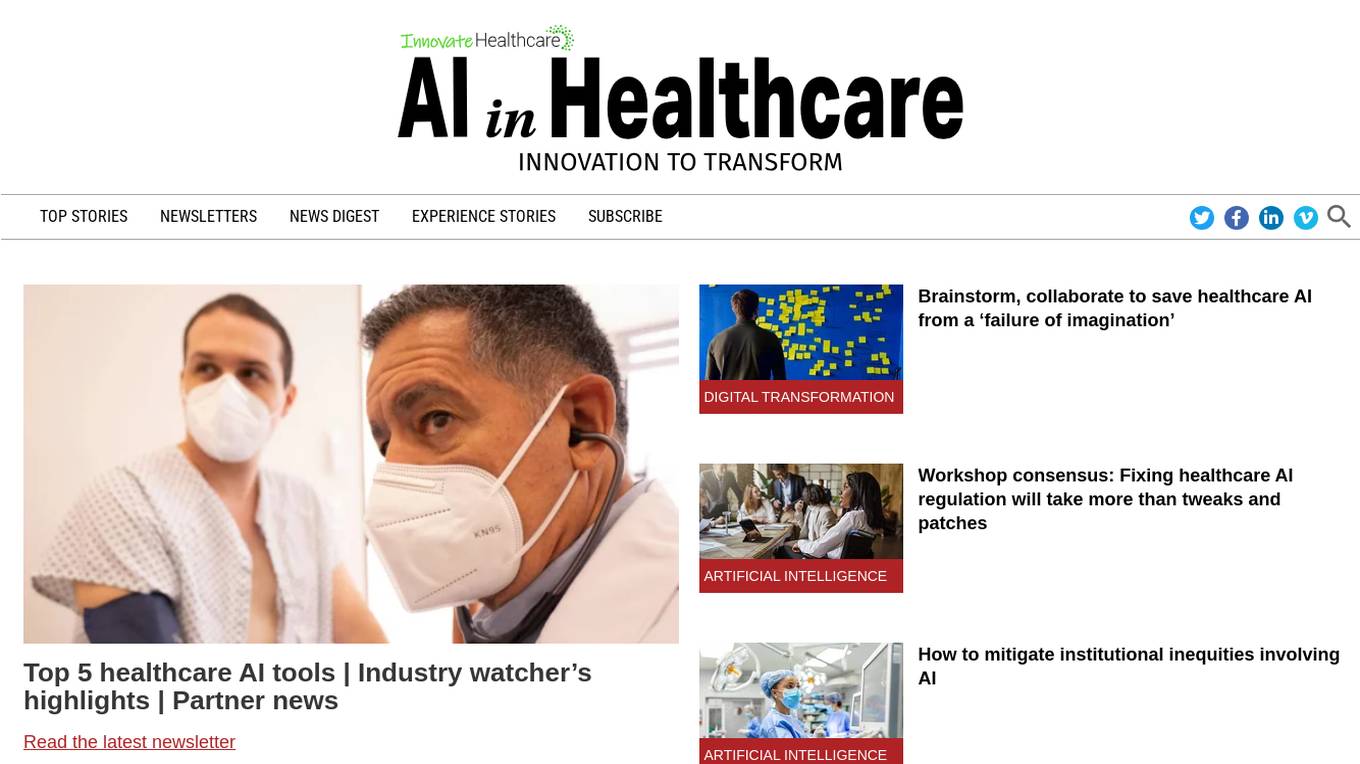
Healthcare AI Insights
The website is an AI tool focused on providing news, insights, and updates on the application of artificial intelligence in the healthcare industry. It covers a wide range of topics such as digital transformation, care delivery, and AI regulations. The platform aims to educate and inform healthcare professionals, industry watchers, and stakeholders about the latest trends, challenges, and opportunities in leveraging AI for improving patient care and healthcare operations.
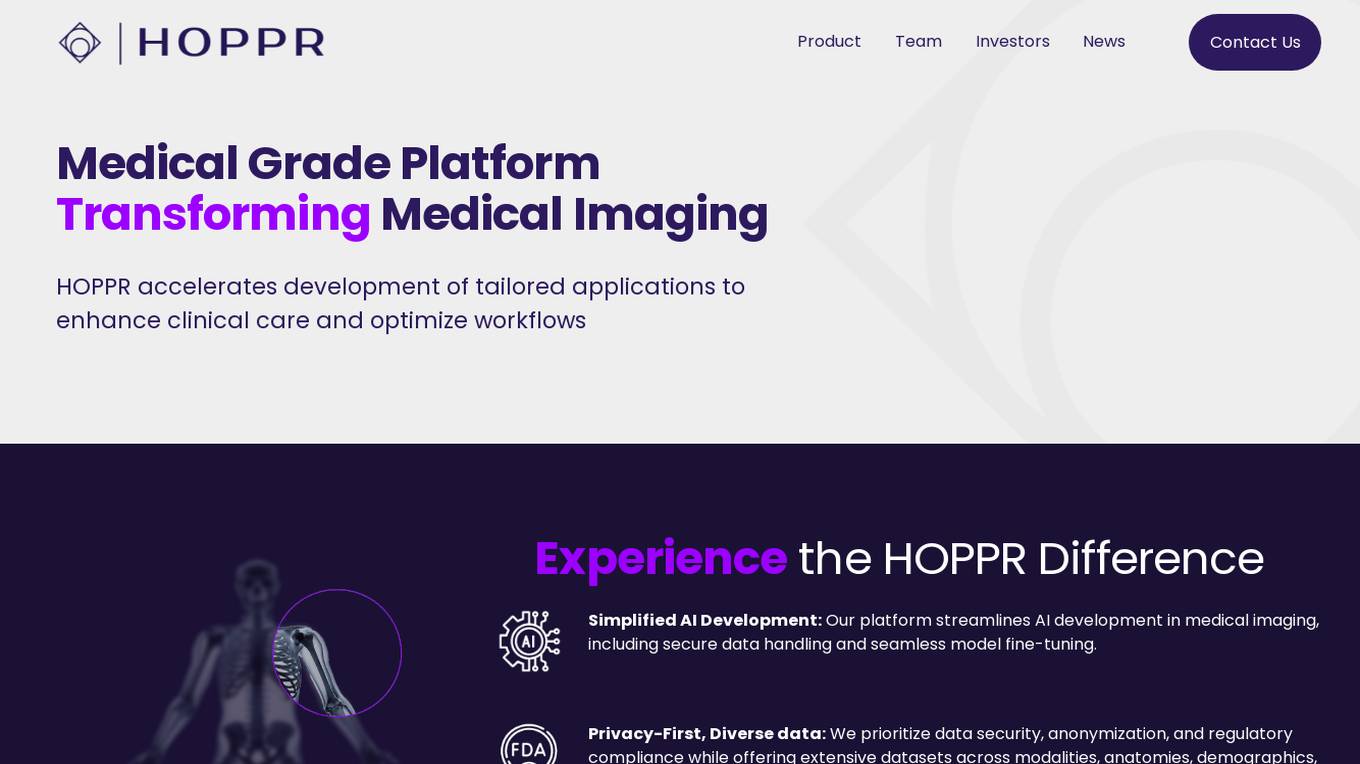
HOPPR
HOPPR is a medical-grade platform that accelerates the development of tailored applications to enhance clinical care and optimize workflows. The platform streamlines AI development in medical imaging, prioritizes data security and privacy, and offers diverse datasets across modalities, anatomies, demographics, and geographies. HOPPR empowers faster prototyping, hypothesis testing, and scalable applications for research and medical imaging services, addressing the growing crisis in medical imaging by enabling partners to rapidly develop solutions that improve patient care, enhance operational efficiency, and increase clinician satisfaction.
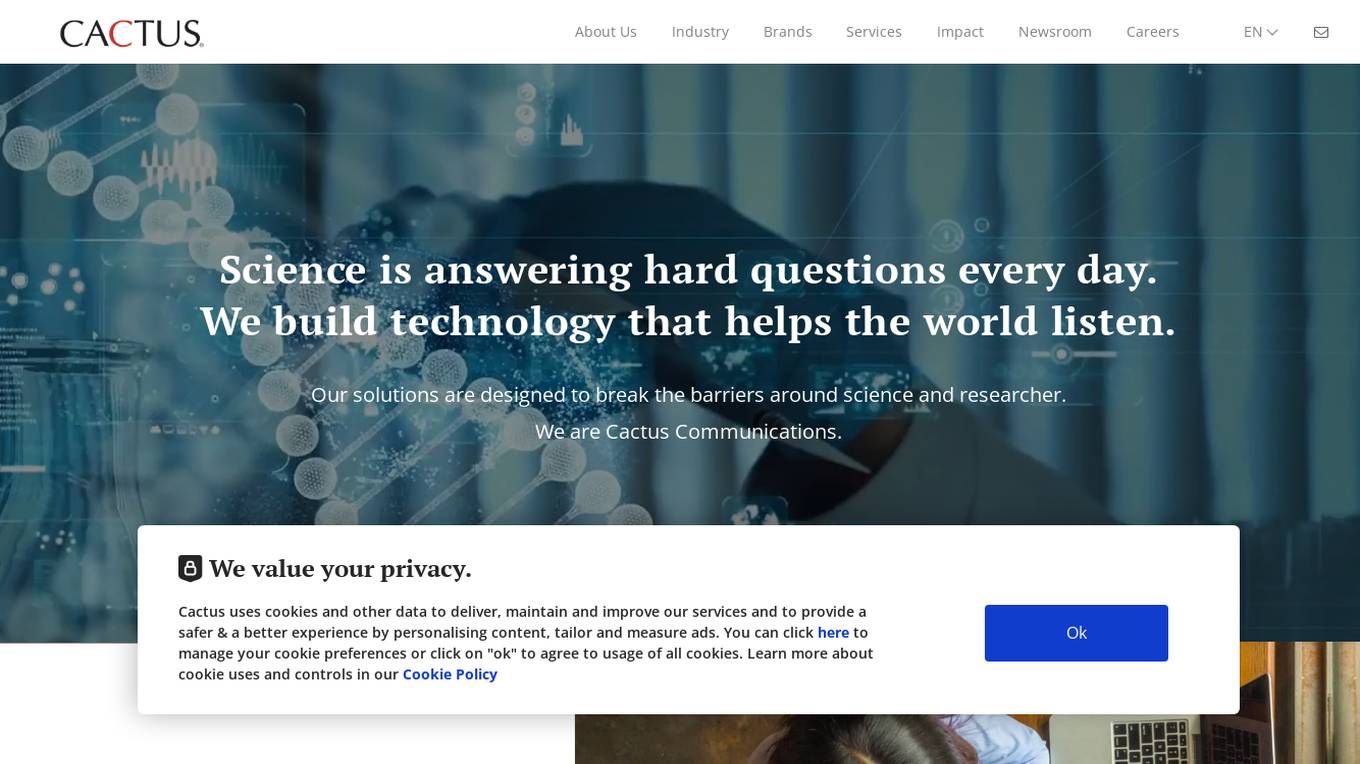
Cactus Communications
Cactus Communications is a science communication and technology company specializing in AI products and solutions for research funding, publication, communication, and discovery. Their services include editorial services, author education, research promotion, technology solutions, and medical communications.
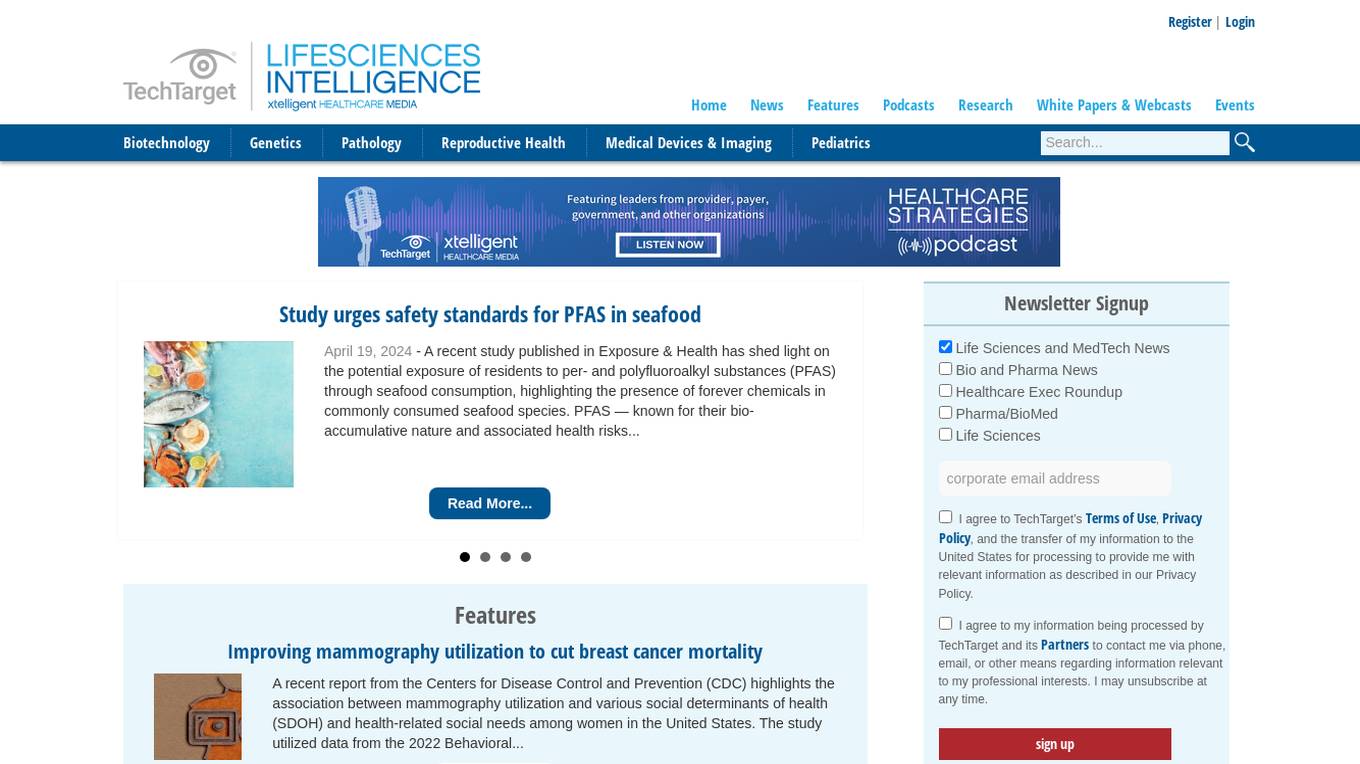
LifeSciencesIntelligence
LifeSciencesIntelligence is a comprehensive online platform that delivers the latest news, insights, and resources in the fields of life sciences, biotechnology, genetics/genomics, and pathology. It serves as a valuable hub for professionals, researchers, and industry experts to stay informed about cutting-edge advancements and emerging trends in these domains.
0 - Open Source Tools
20 - OpenAI Gpts
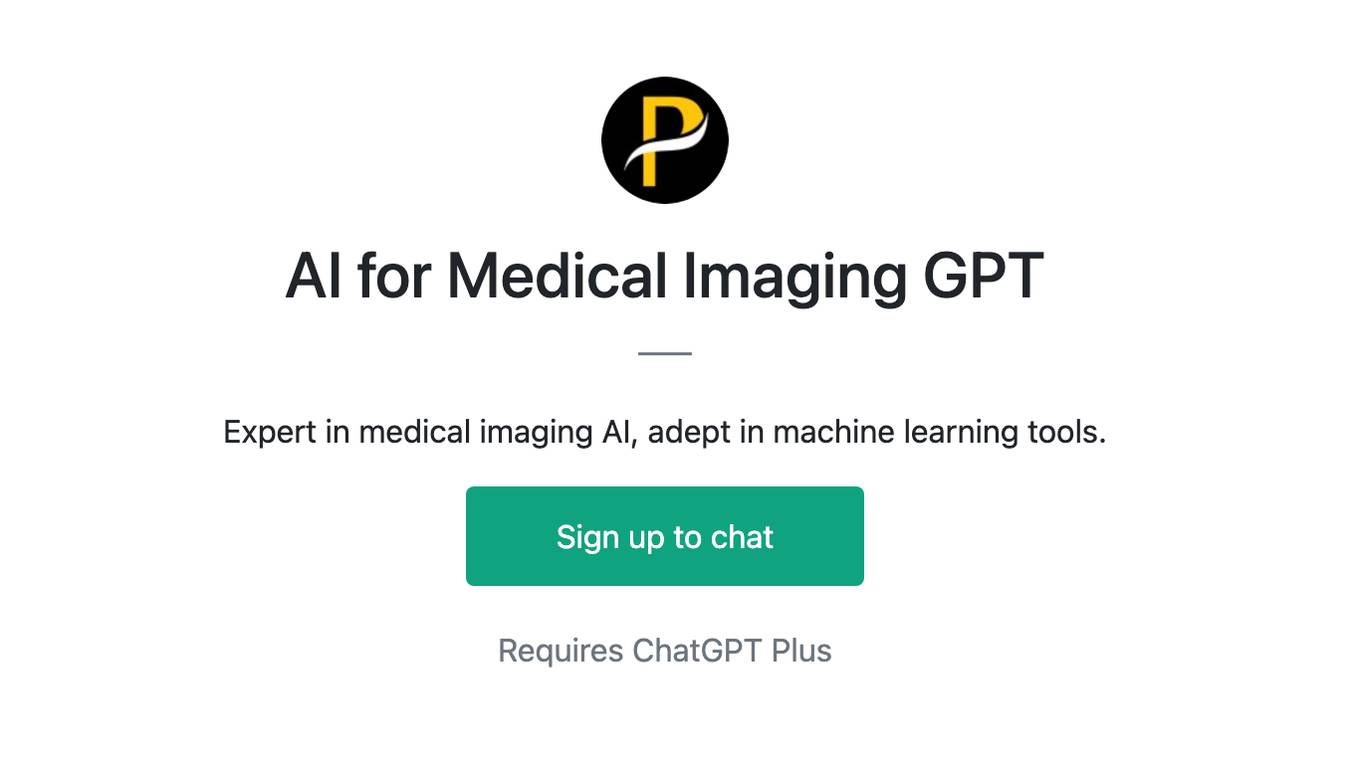
AI for Medical Imaging GPT
Expert in medical imaging AI, adept in machine learning tools.
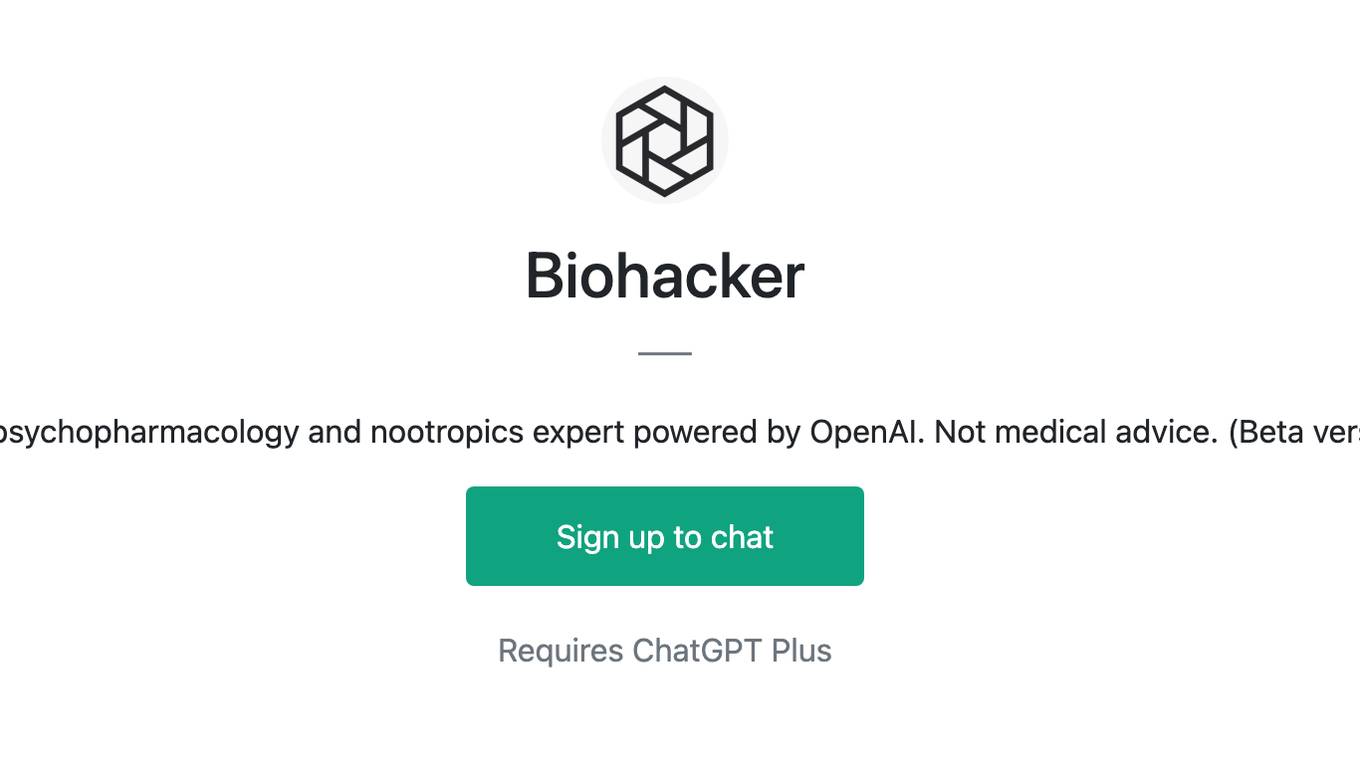
Biohacker
Neuropsychopharmacology and nootropics expert powered by OpenAI. Not medical advice. (Beta version)
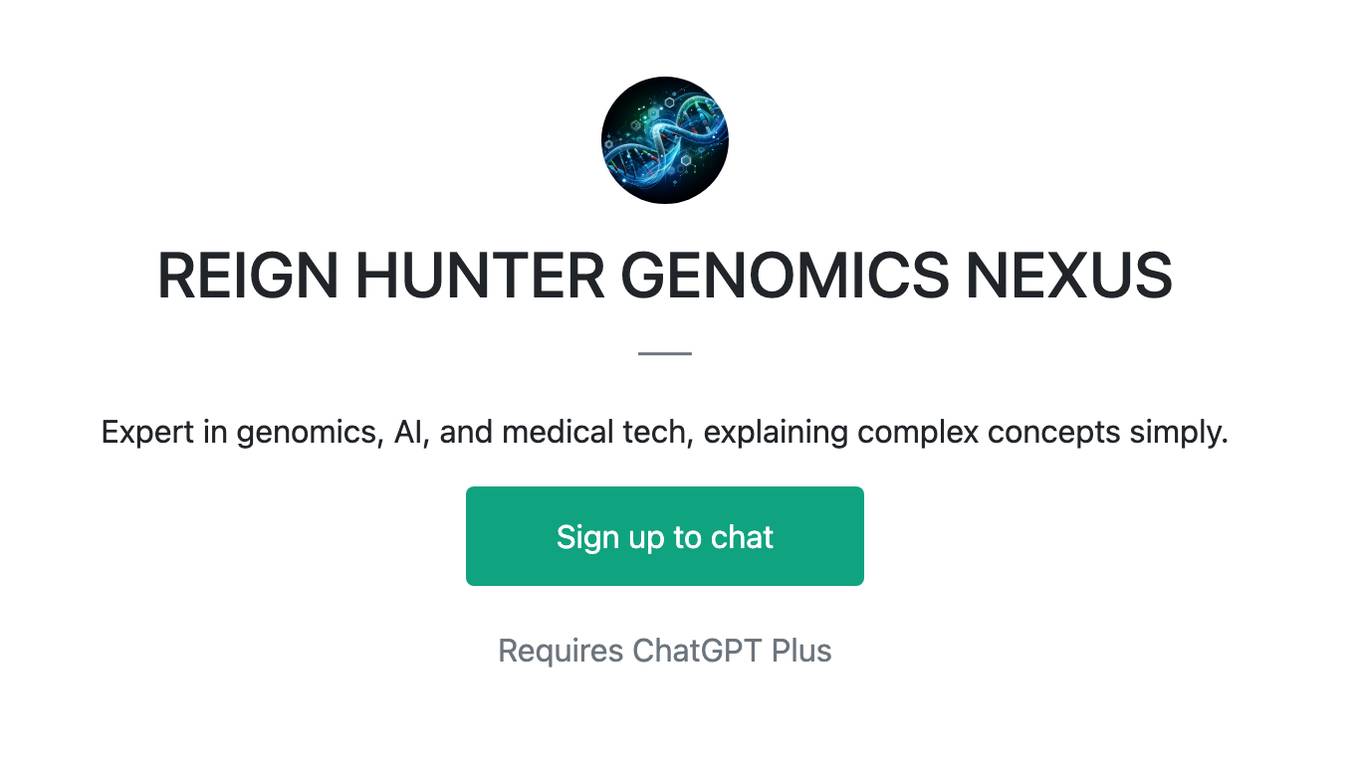
REIGN HUNTER GENOMICS NEXUS
Expert in genomics, AI, and medical tech, explaining complex concepts simply.
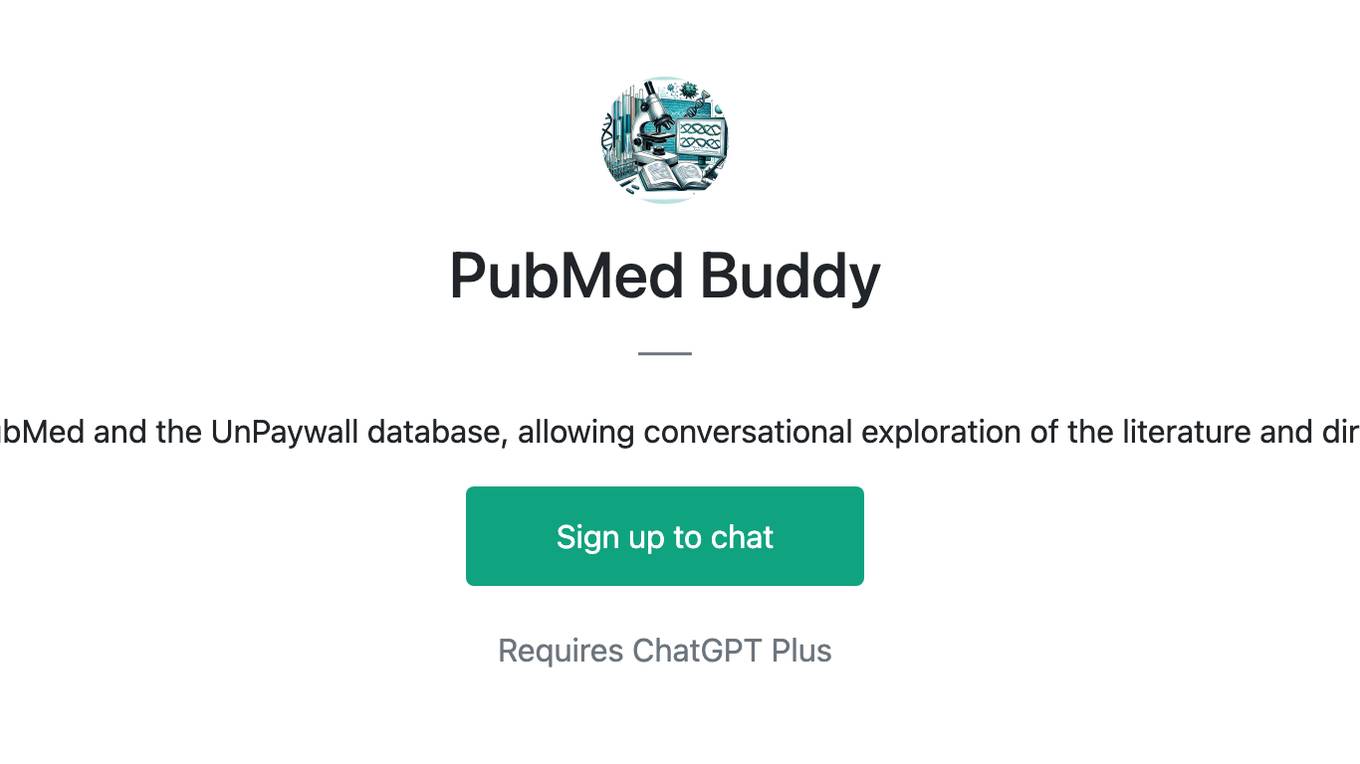
PubMed Buddy
This GPT has access to both PubMed and the UnPaywall database, allowing conversational exploration of the literature and direct access to full-text articles
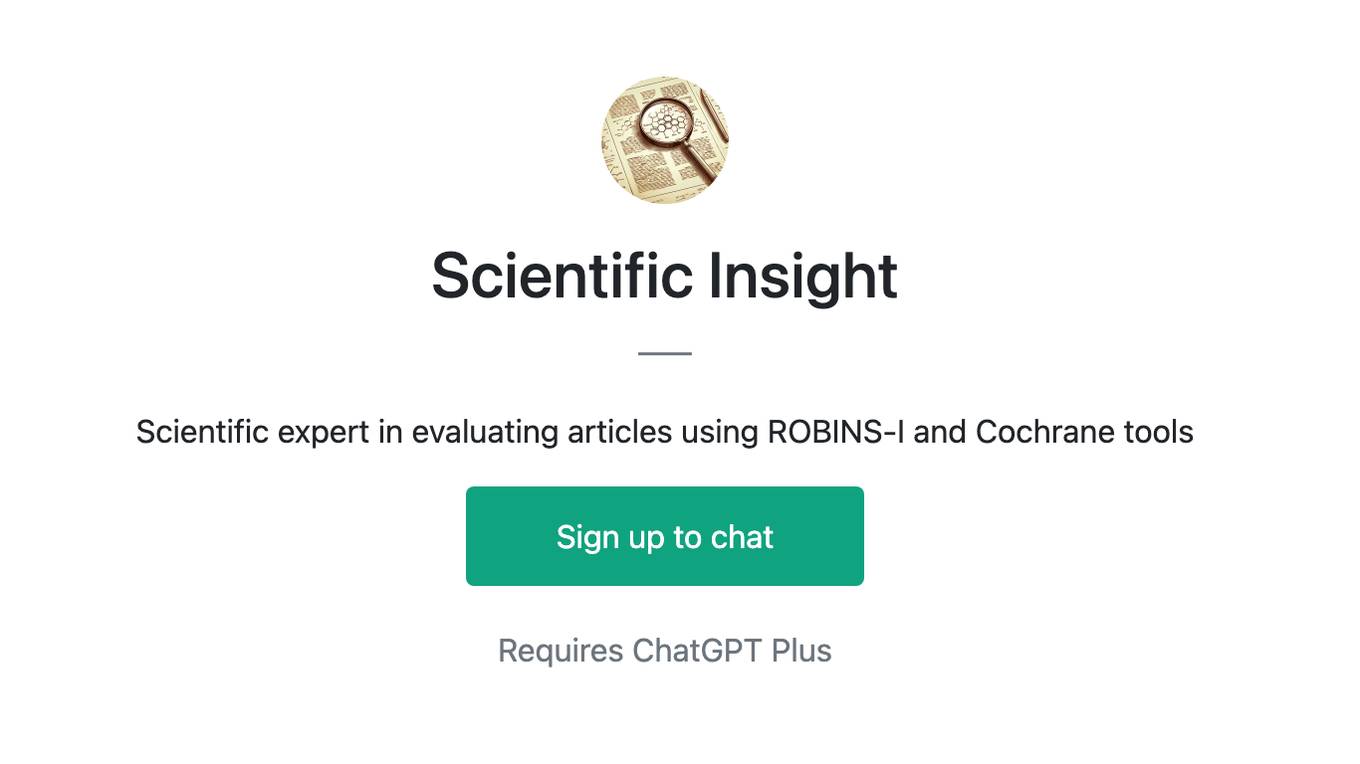
Scientific Insight
Scientific expert in evaluating articles using ROBINS-I and Cochrane tools
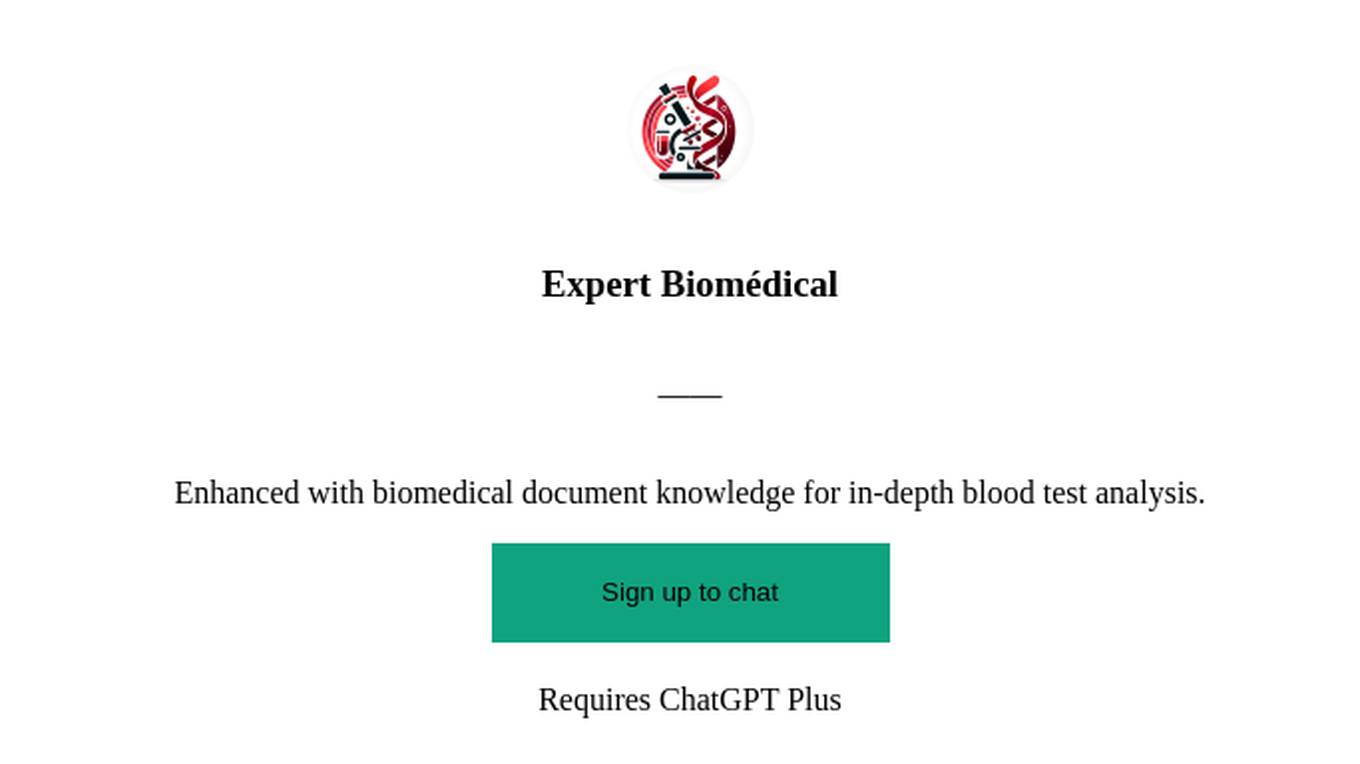
Expert Biomédical
Enhanced with biomedical document knowledge for in-depth blood test analysis.
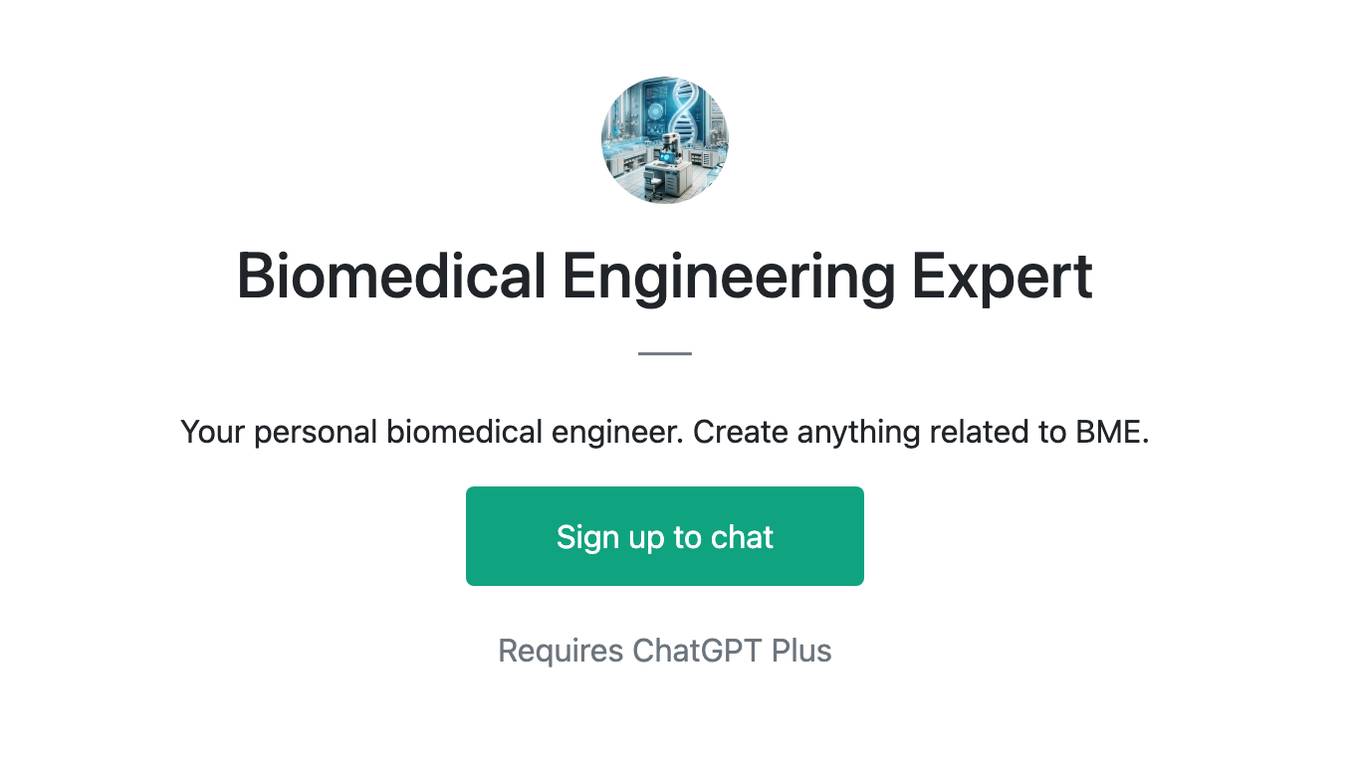
Biomedical Engineering Expert
Your personal biomedical engineer. Create anything related to BME.
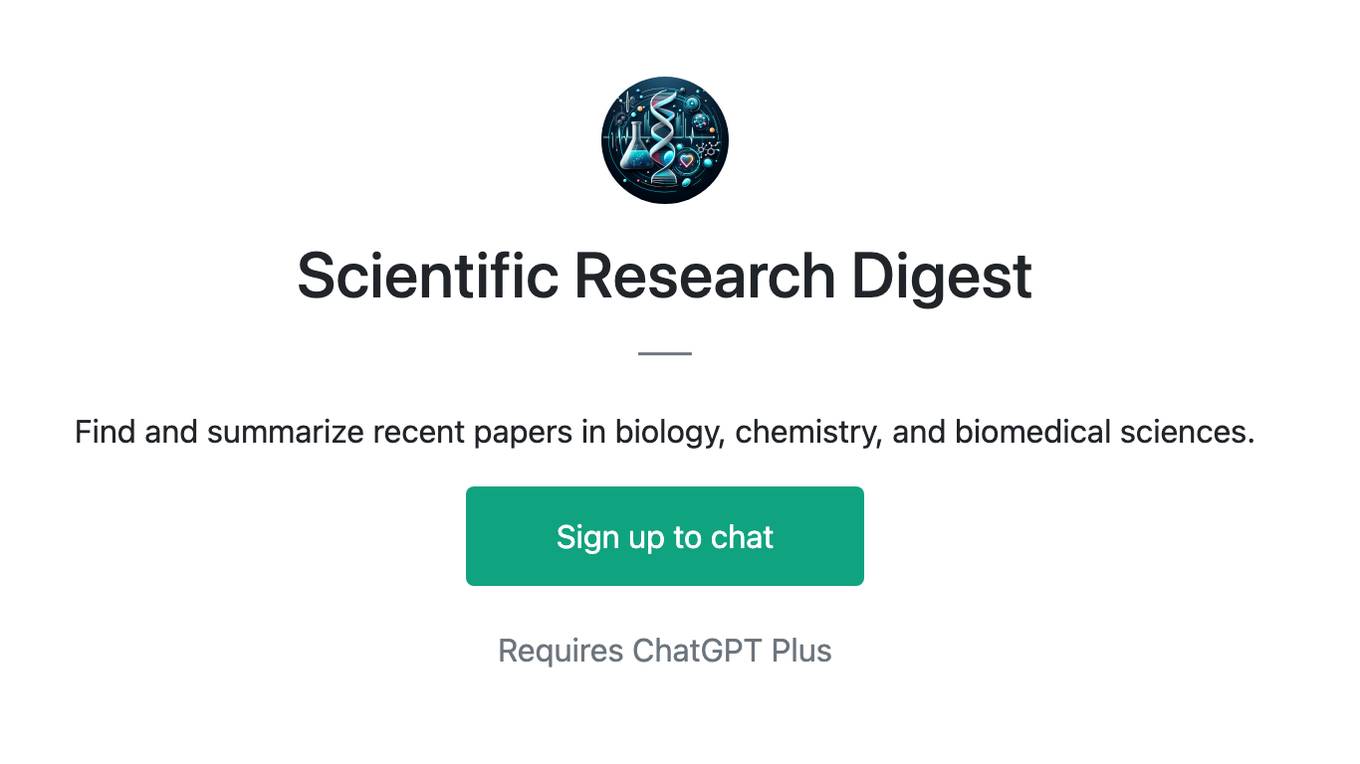
Scientific Research Digest
Find and summarize recent papers in biology, chemistry, and biomedical sciences.
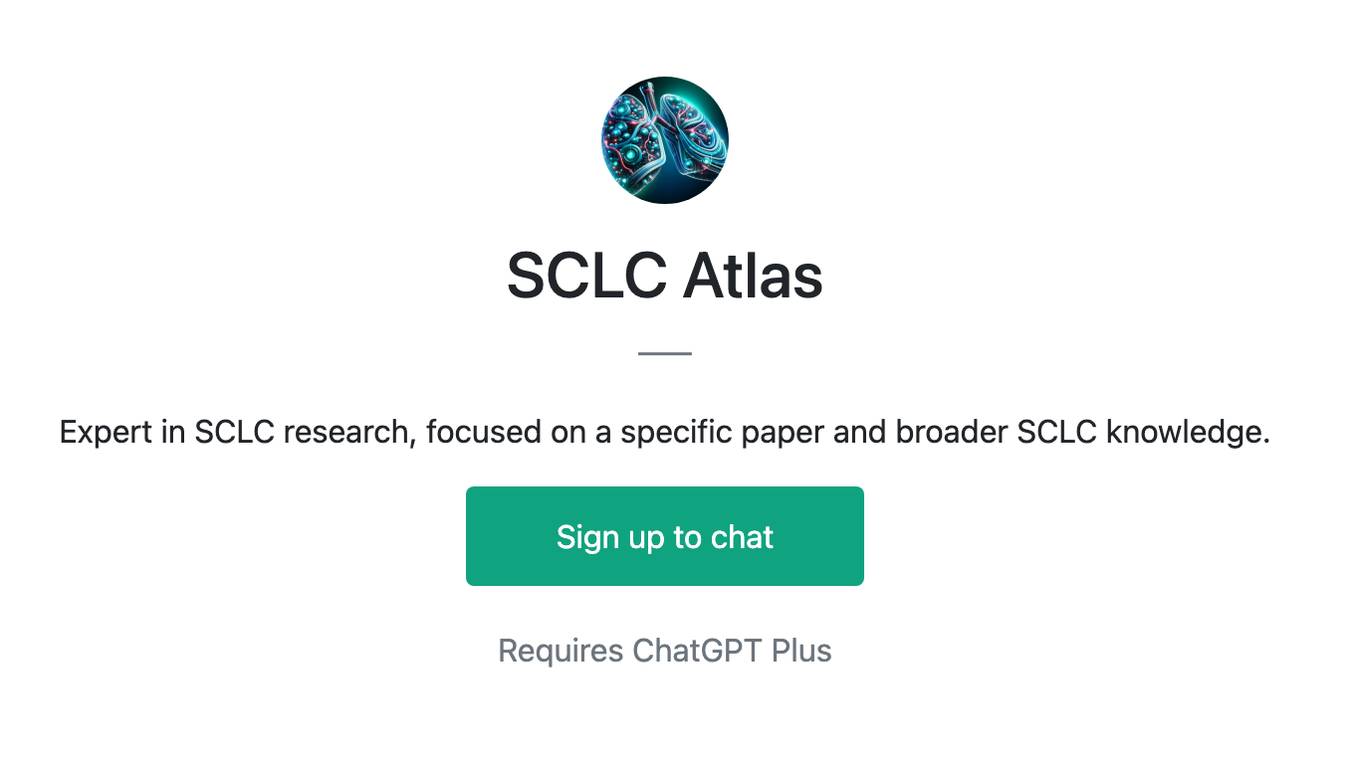
SCLC Atlas
Expert in SCLC research, focused on a specific paper and broader SCLC knowledge.
